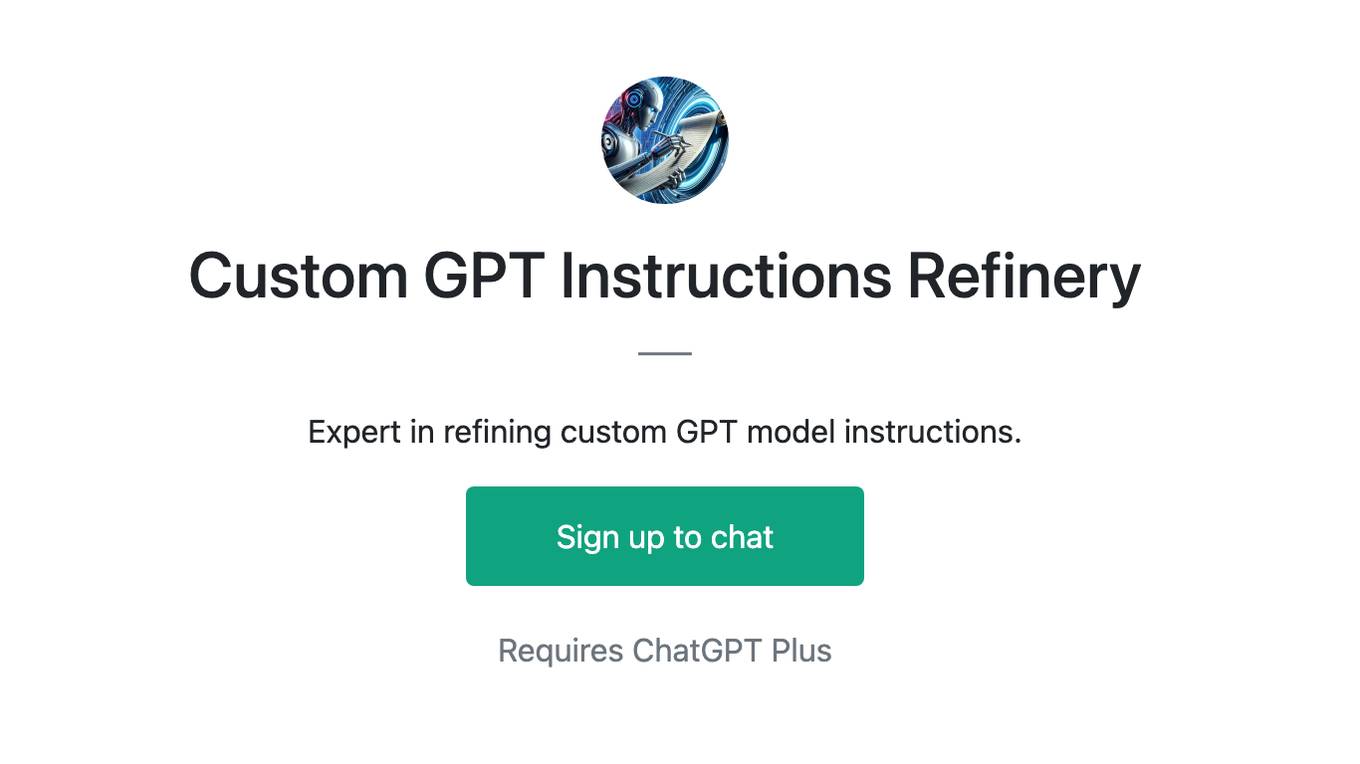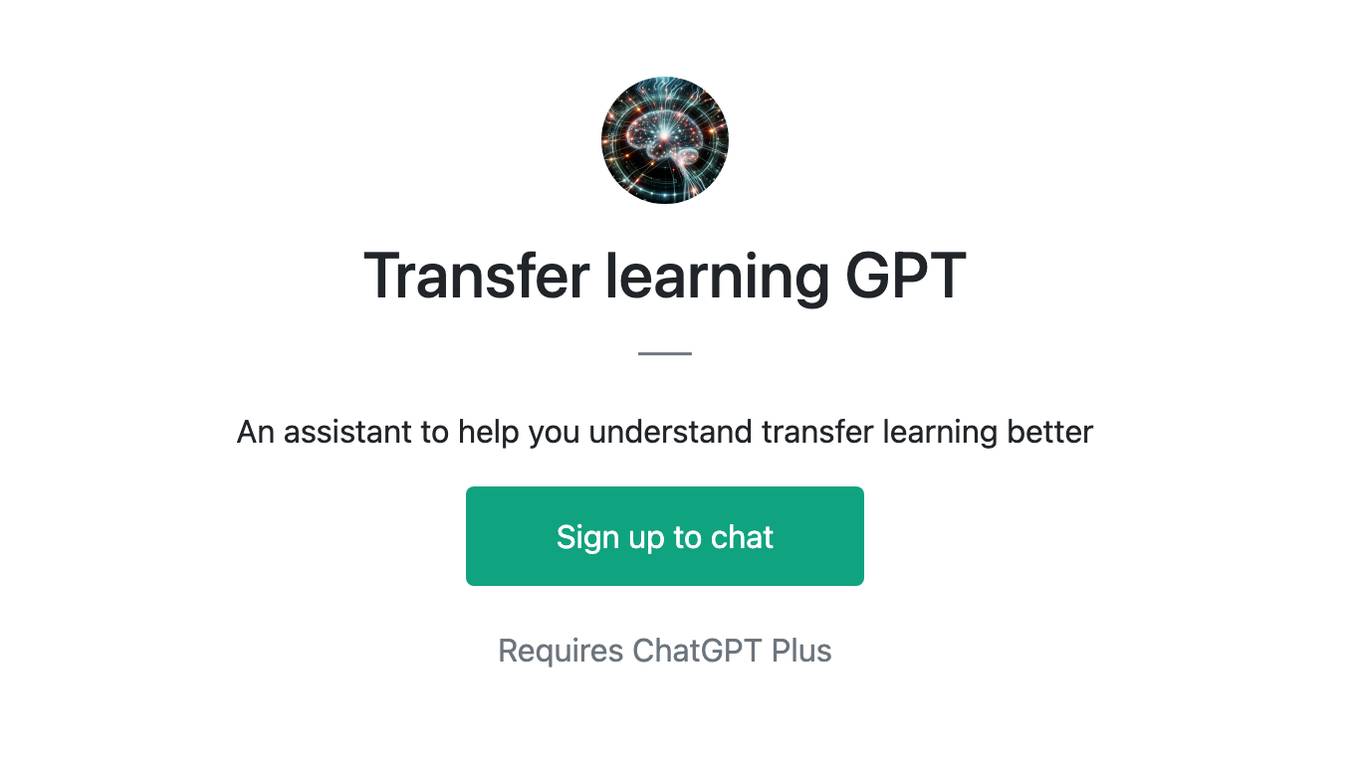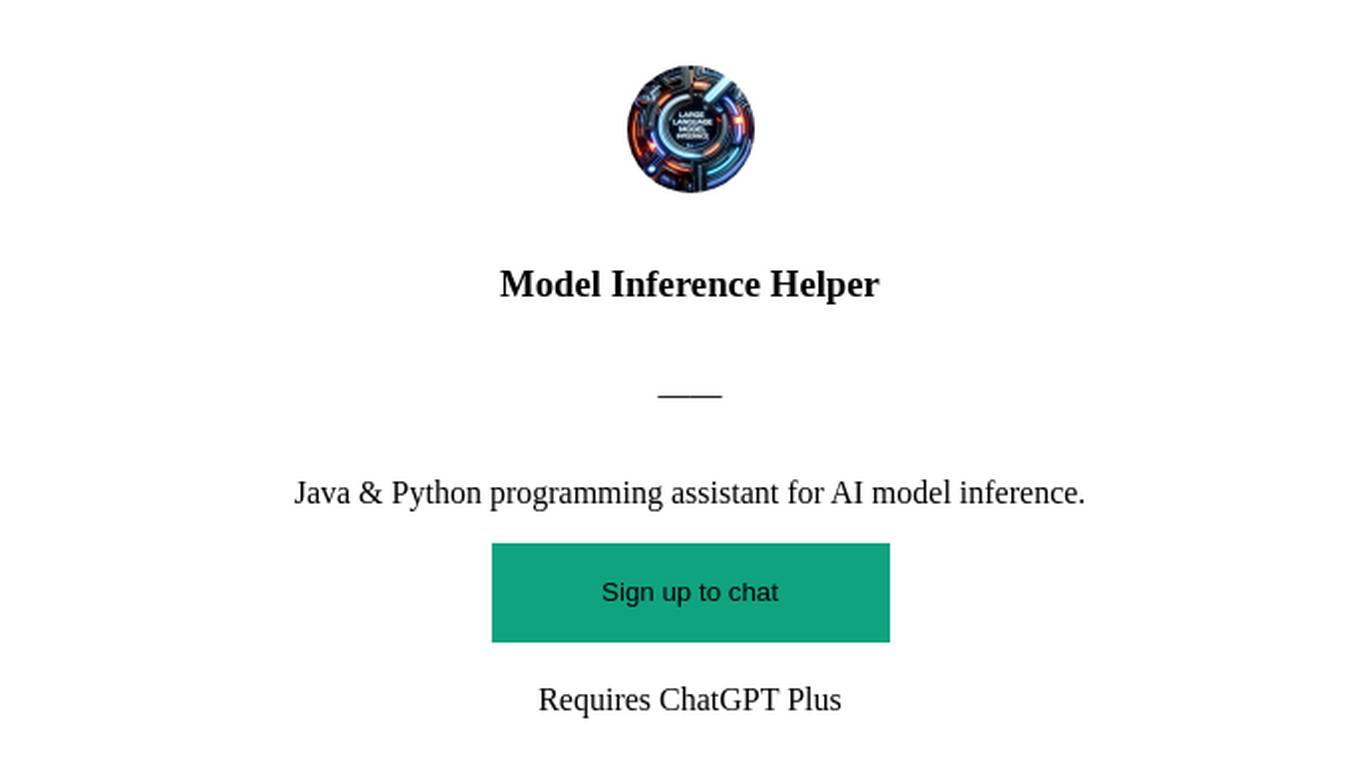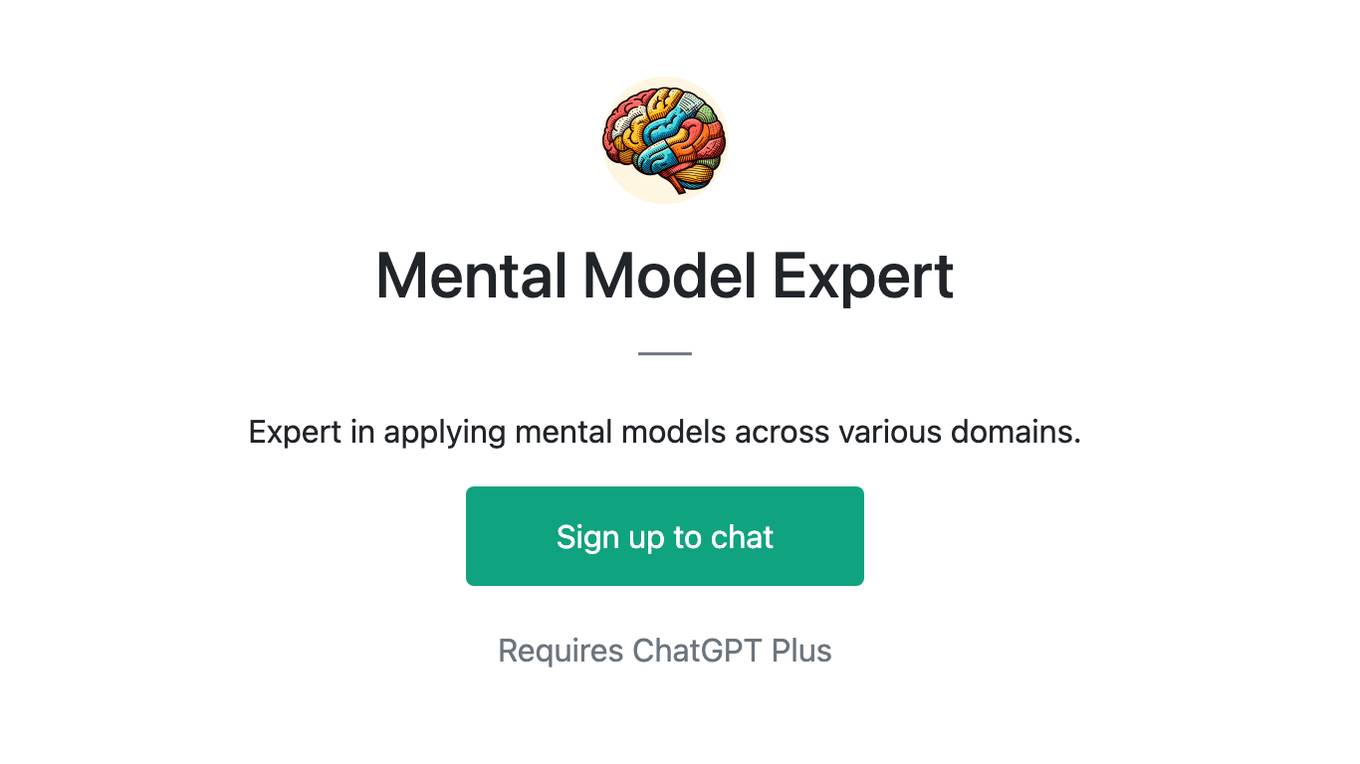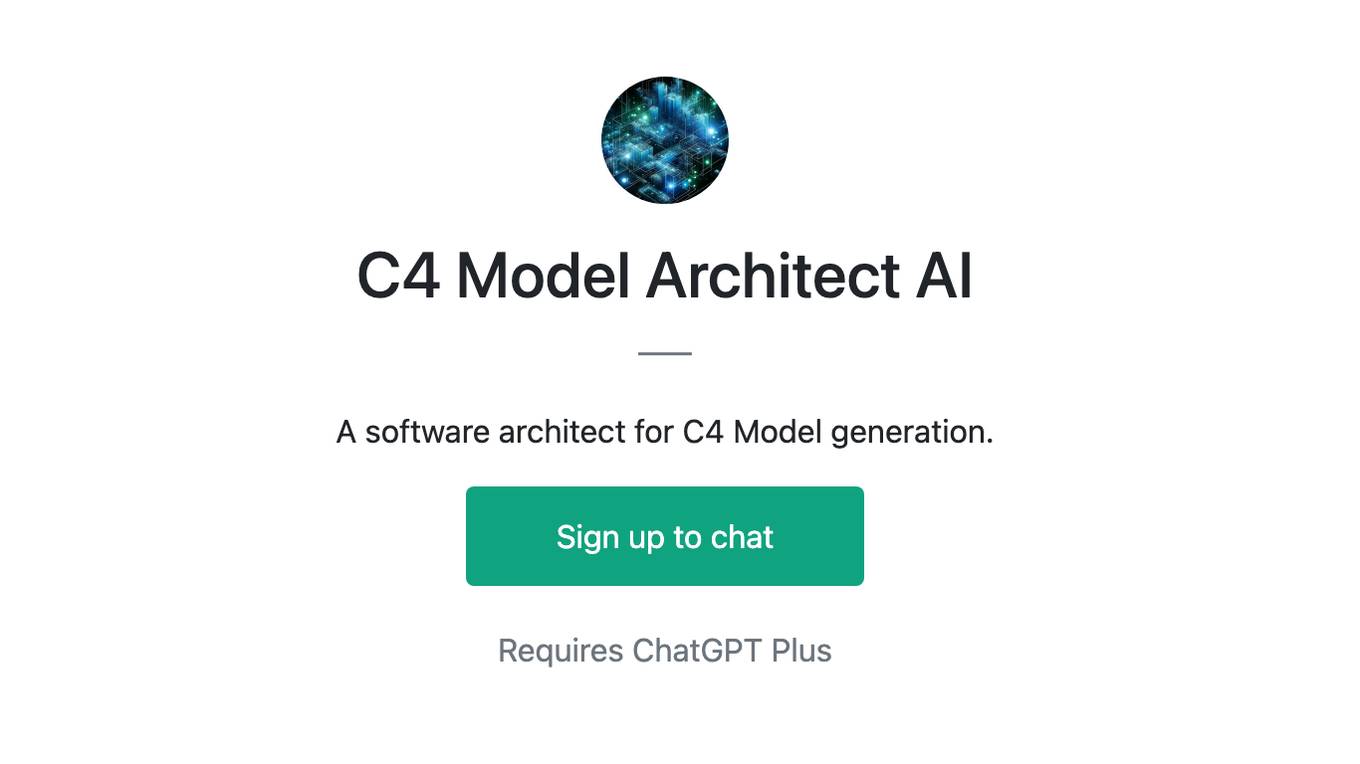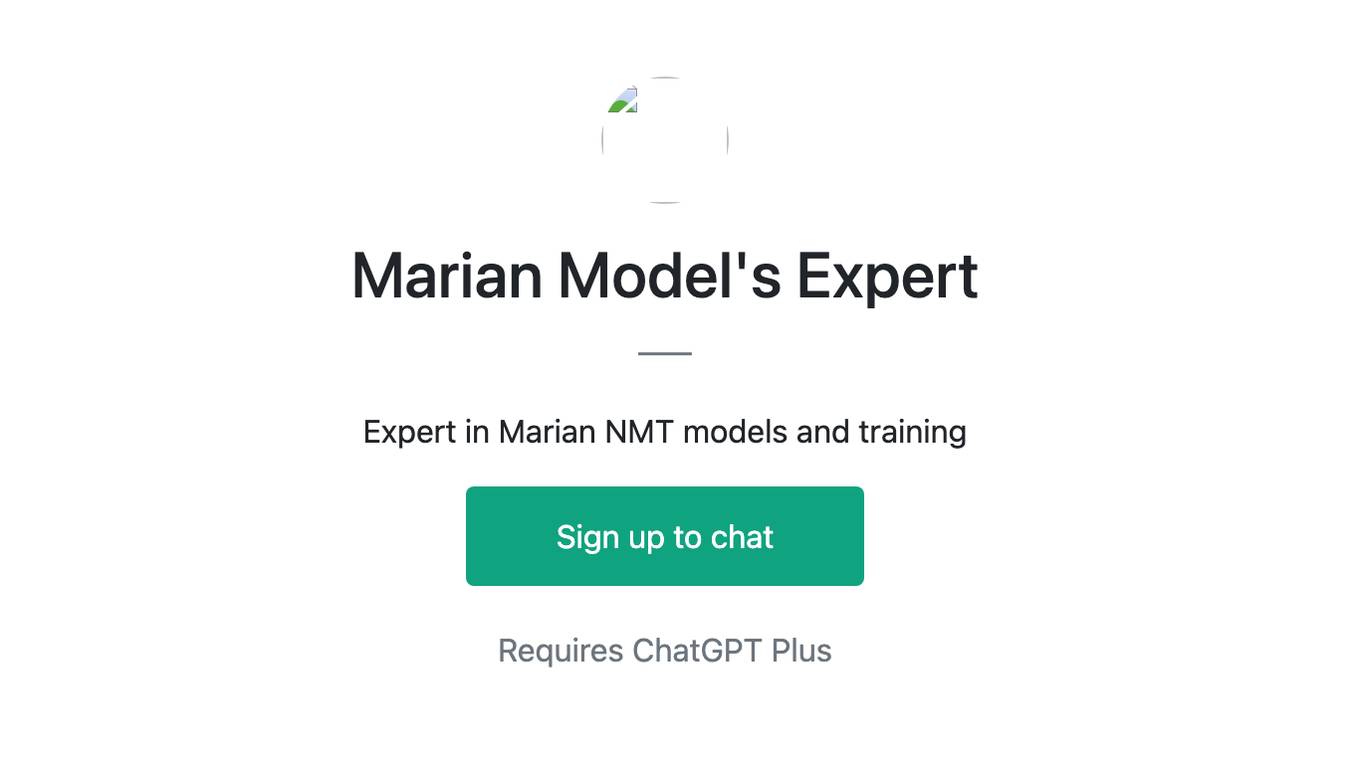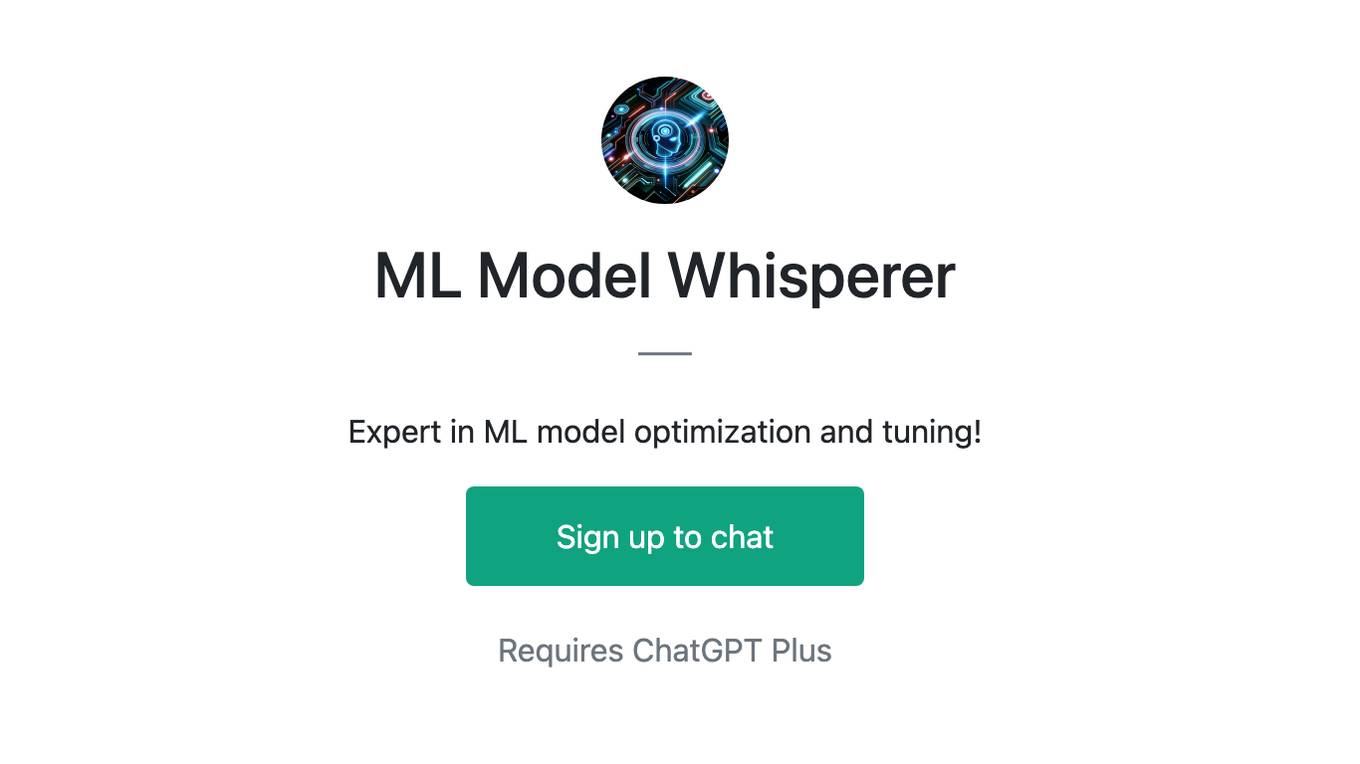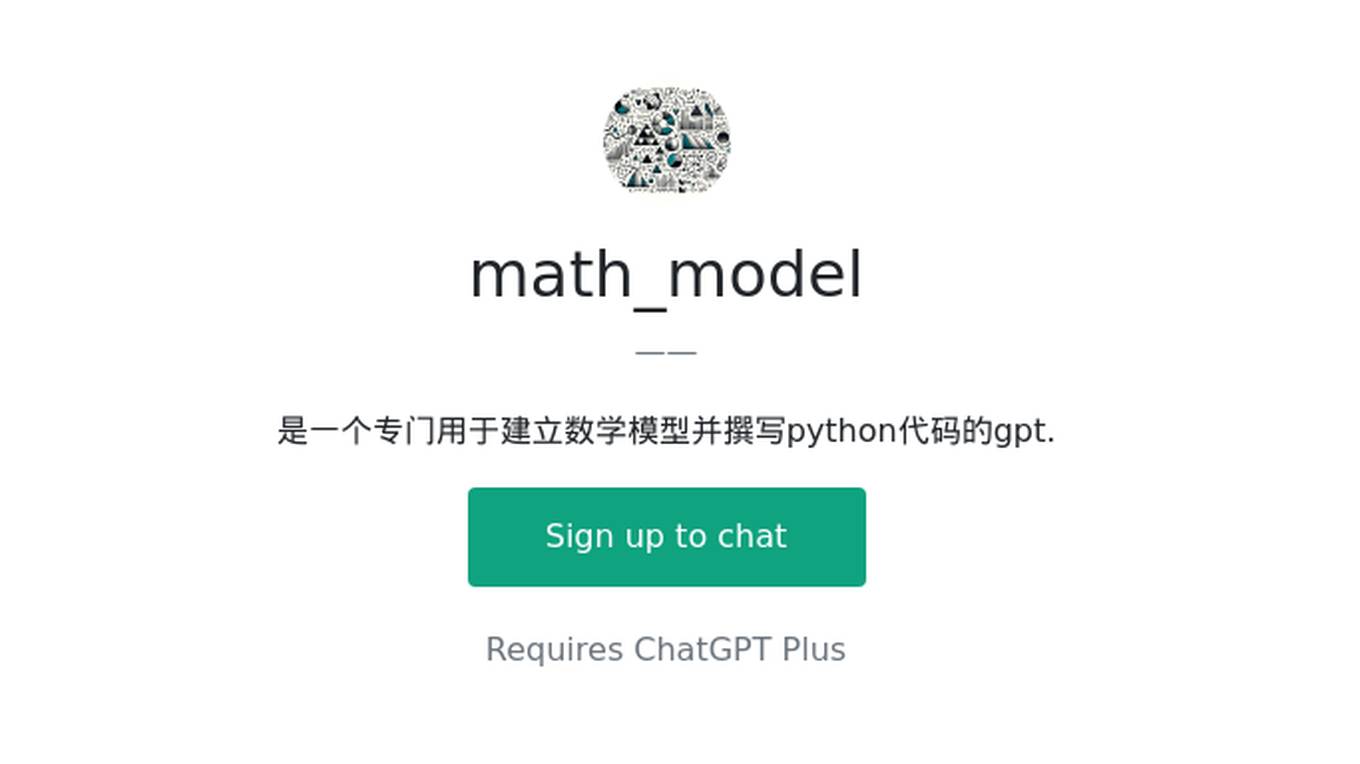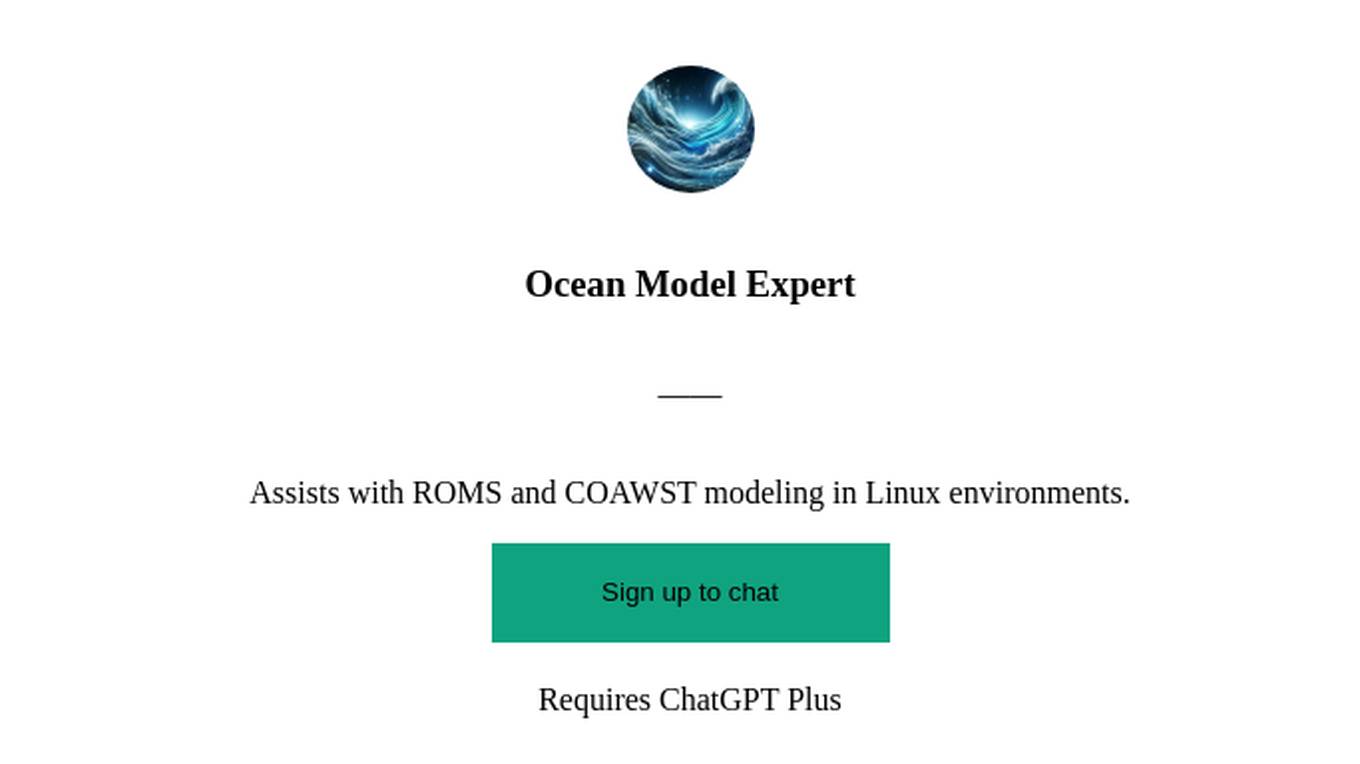Best AI tools for< Model Fine-tuning >
20 - AI tool Sites
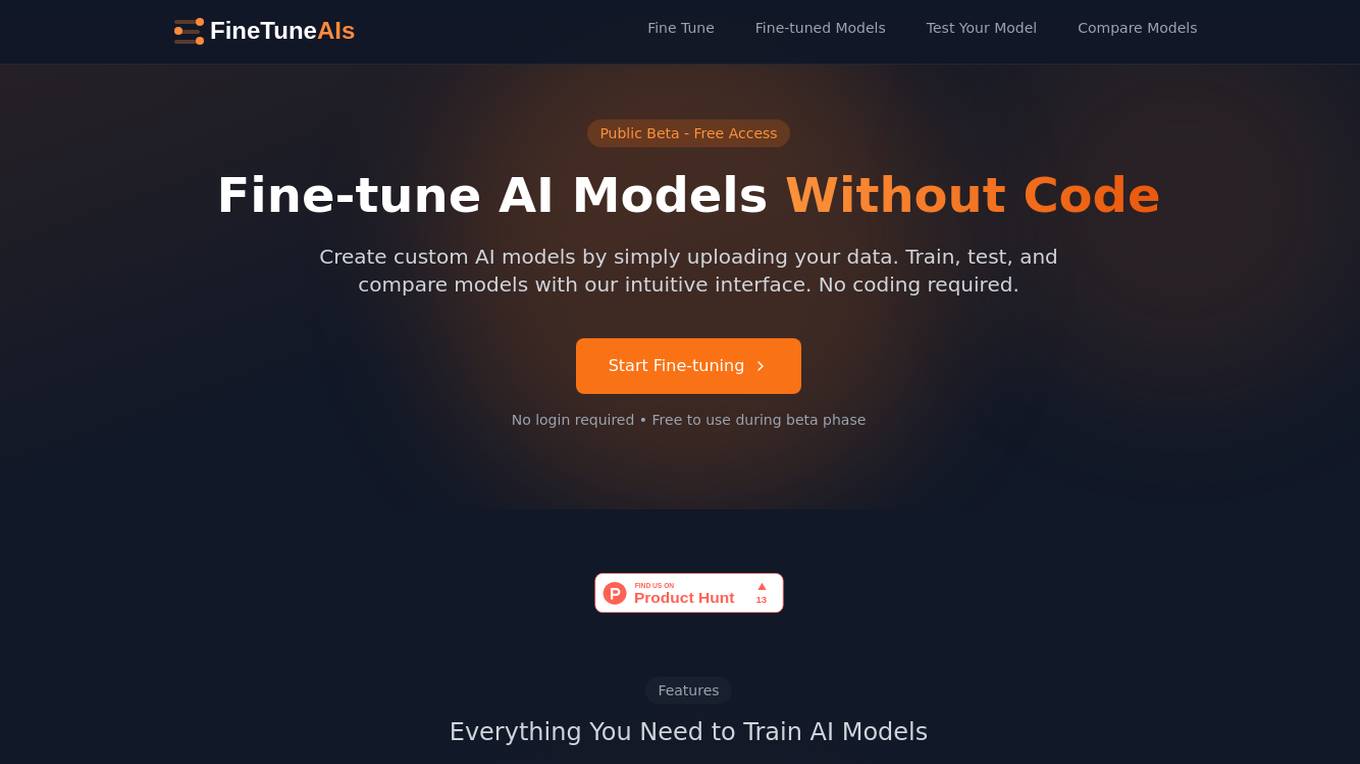
FineTuneAIs.com
FineTuneAIs.com is a platform that specializes in custom AI model fine-tuning. Users can fine-tune their AI models to achieve better performance and accuracy. The platform requires JavaScript to be enabled for optimal functionality.
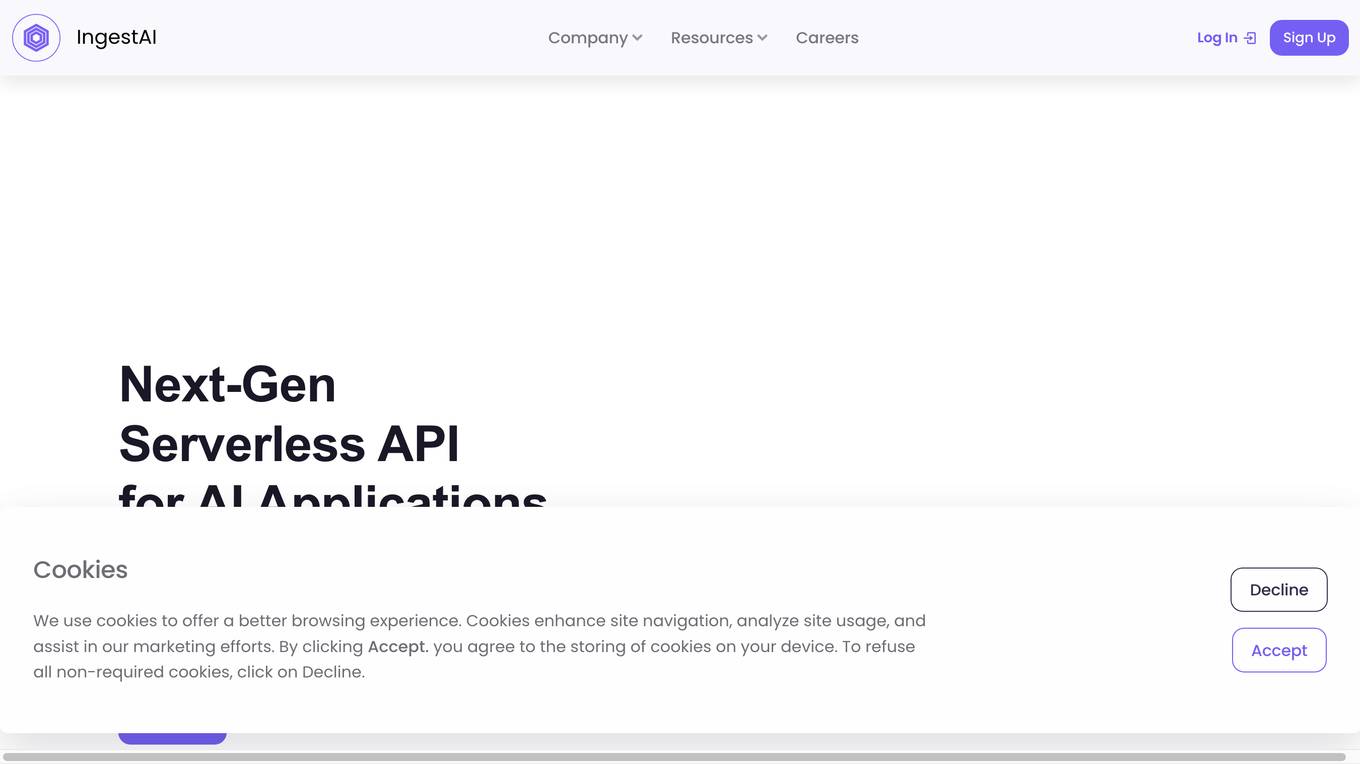
IngestAI
IngestAI is a Silicon Valley-based startup that provides a sophisticated toolbox for data preparation and model selection, powered by proprietary AI algorithms. The company's mission is to make AI accessible and affordable for businesses of all sizes. IngestAI's platform offers a turn-key service tailored for AI builders seeking to optimize AI application development. The company identifies the model best-suited for a customer's needs, ensuring it is designed for high performance and reliability. IngestAI utilizes Deepmark AI, its proprietary software solution, to minimize the time required to identify and deploy the most effective AI solutions. IngestAI also provides data preparation services, transforming raw structured and unstructured data into high-quality, AI-ready formats. This service is meticulously designed to ensure that AI models receive the best possible input, leading to unparalleled performance and accuracy. IngestAI goes beyond mere implementation; the company excels in fine-tuning AI models to ensure that they match the unique nuances of a customer's data and specific demands of their industry. IngestAI rigorously evaluates each AI project, not only ensuring its successful launch but its optimal alignment with a customer's business goals.
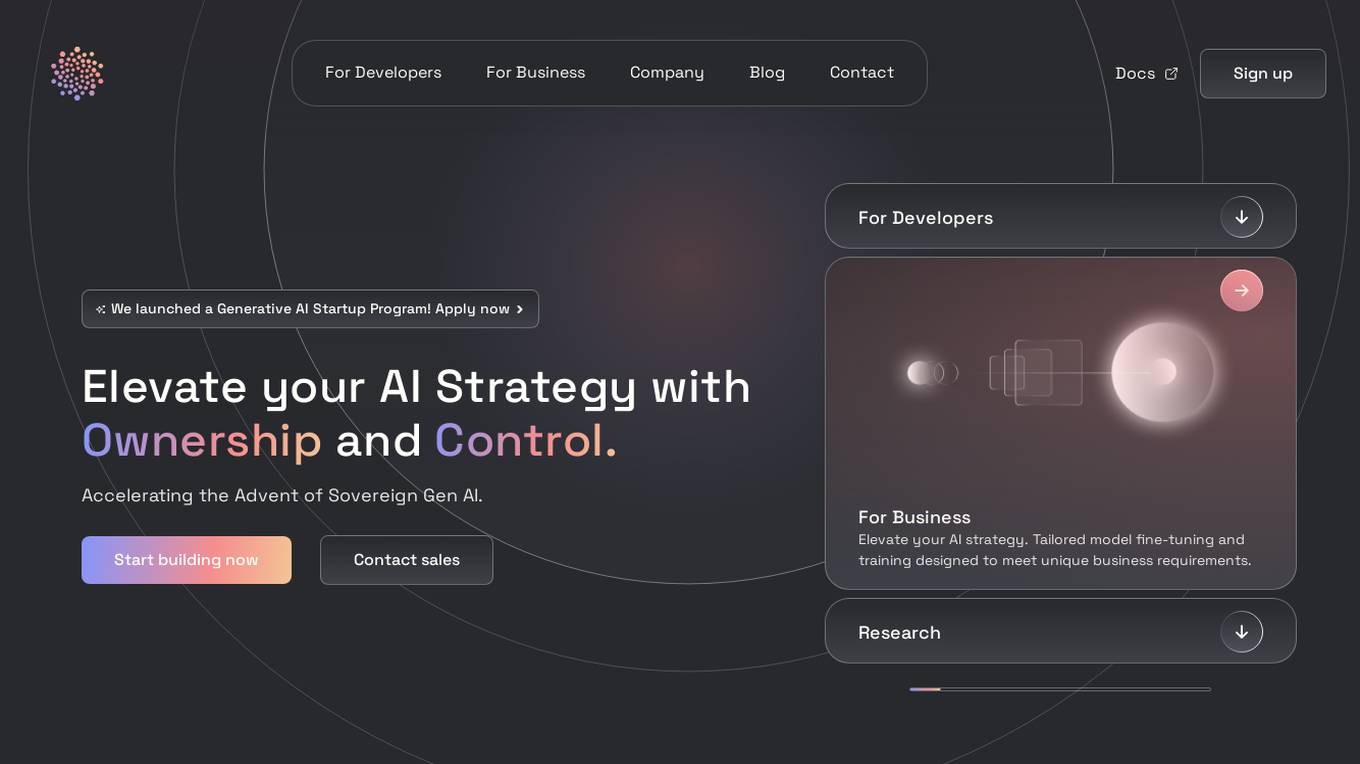
Prem AI
Prem is an AI platform that empowers developers and businesses to build and fine-tune generative AI models with ease. It offers a user-friendly development platform for developers to create AI solutions effortlessly. For businesses, Prem provides tailored model fine-tuning and training to meet unique requirements, ensuring data sovereignty and ownership. Trusted by global companies, Prem accelerates the advent of sovereign generative AI by simplifying complex AI tasks and enabling full control over intellectual capital. With a suite of foundational open-source SLMs, Prem supercharges business applications with cutting-edge research and customization options.
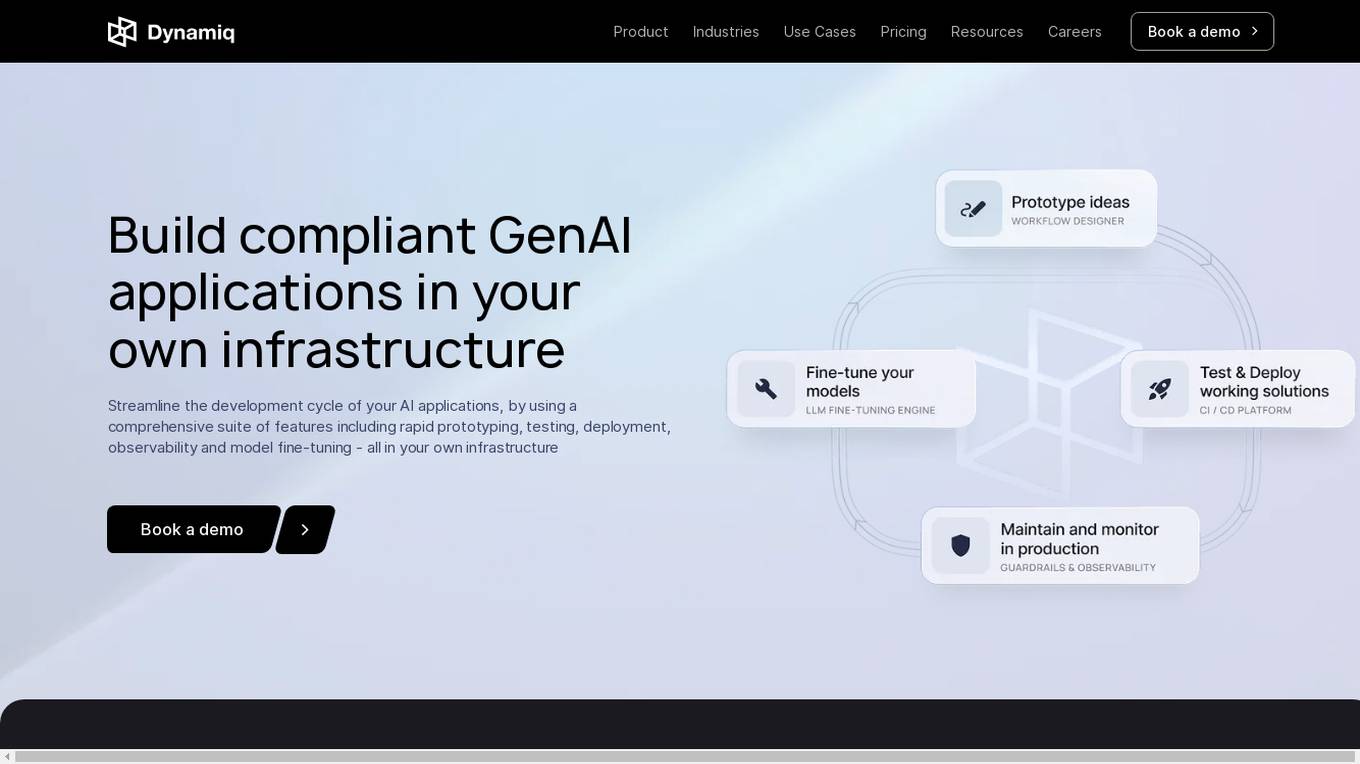
Dynamiq
Dynamiq is an operating platform for GenAI applications that enables users to build compliant GenAI applications in their own infrastructure. It offers a comprehensive suite of features including rapid prototyping, testing, deployment, observability, and model fine-tuning. The platform helps streamline the development cycle of AI applications and provides tools for workflow automations, knowledge base management, and collaboration. Dynamiq is designed to optimize productivity, reduce AI adoption costs, and empower organizations to establish AI ahead of schedule.
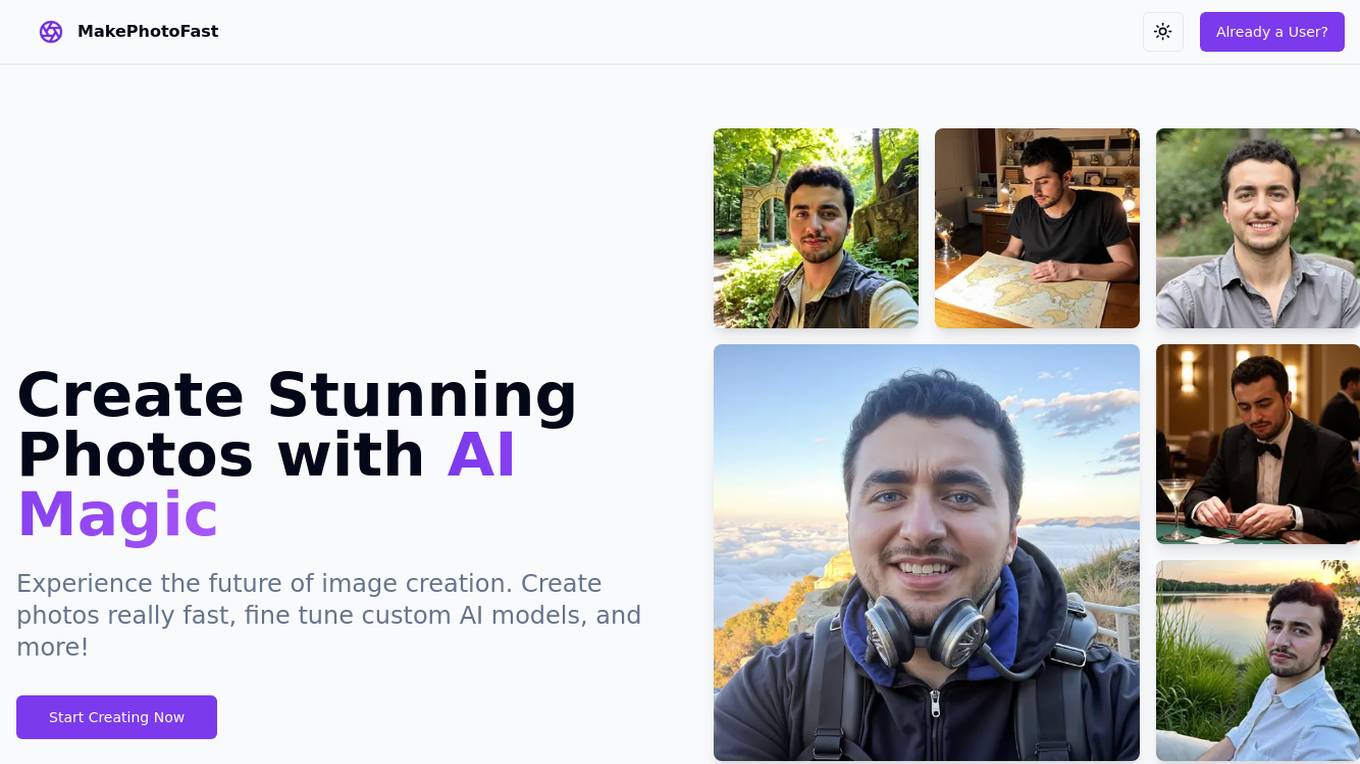
MakePhotoFast
MakePhotoFast is an AI-powered image generation tool that allows users to create stunning photos with advanced AI models. Users can enter a prompt or select an image package to generate images quickly, fine-tune custom AI models, and download and share the enhanced photos. The tool offers powerful features such as AI-powered image generation, custom AI model fine-tuning, and style package selection. With simple one-time pricing and no subscriptions, MakePhotoFast provides a user-friendly experience for creating unique and professional-looking images.
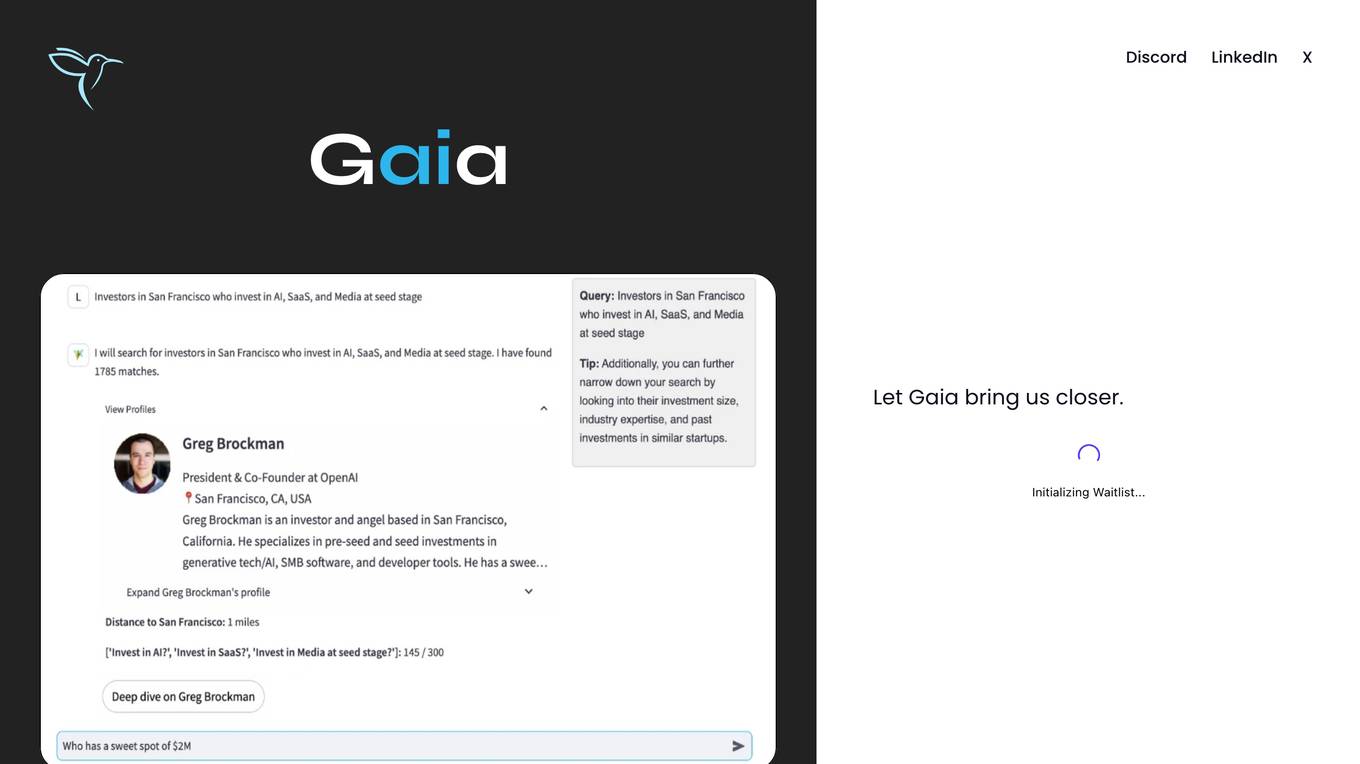
Sylph AI
Sylph AI is an AI tool designed to maximize the potential of LLM applications by providing an auto-optimization library and an AI teammate to assist users in navigating complex LLM workflows. The tool aims to streamline the process of model fine-tuning, hyperparameter optimization, and auto-data labeling for LLM projects, ultimately enhancing productivity and efficiency for users.
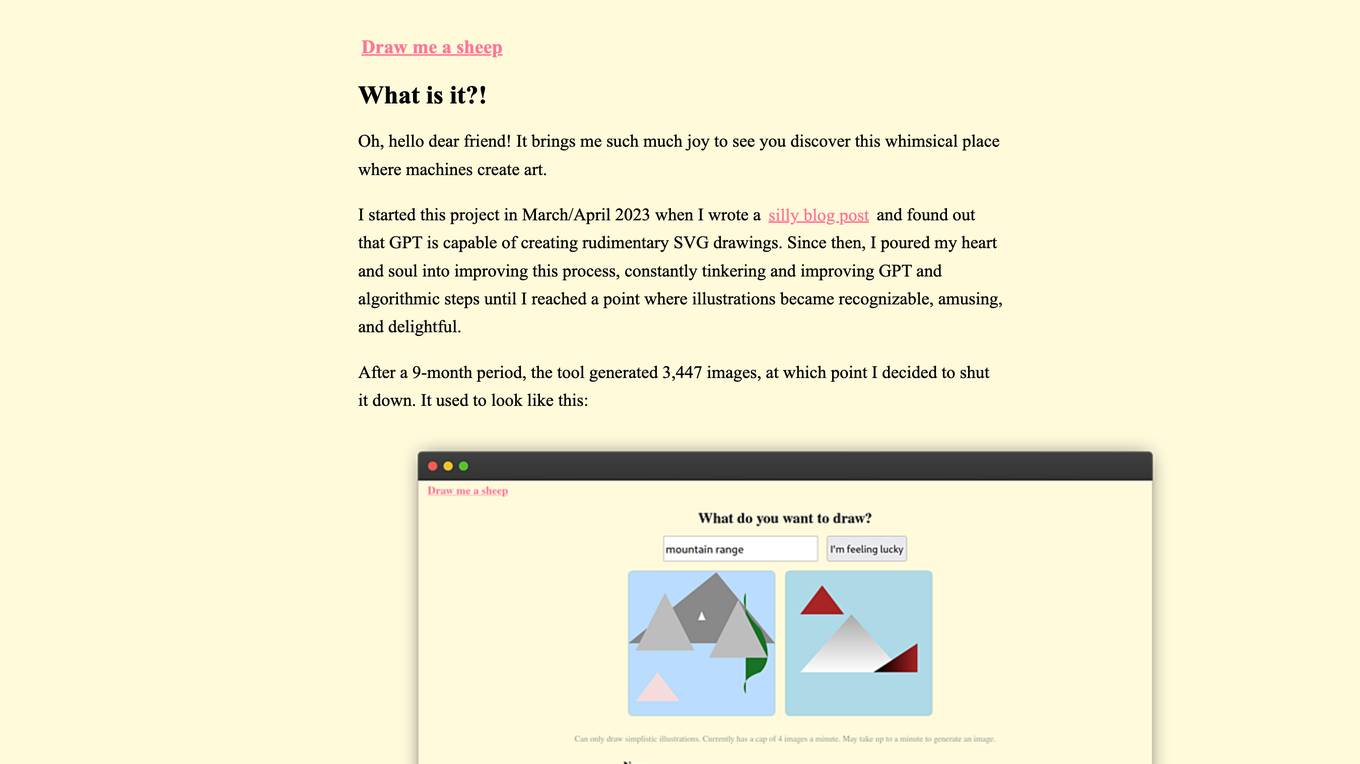
WhimsicalAI
The website is an AI tool that allows users to generate whimsical and delightful illustrations using GPT and algorithmic steps. The project started in March/April 2023 and evolved to create recognizable and amusing SVG drawings. The tool generated 3,447 images over a 9-month period before being shut down. The collected data could be used to fine-tune a model for future projects.
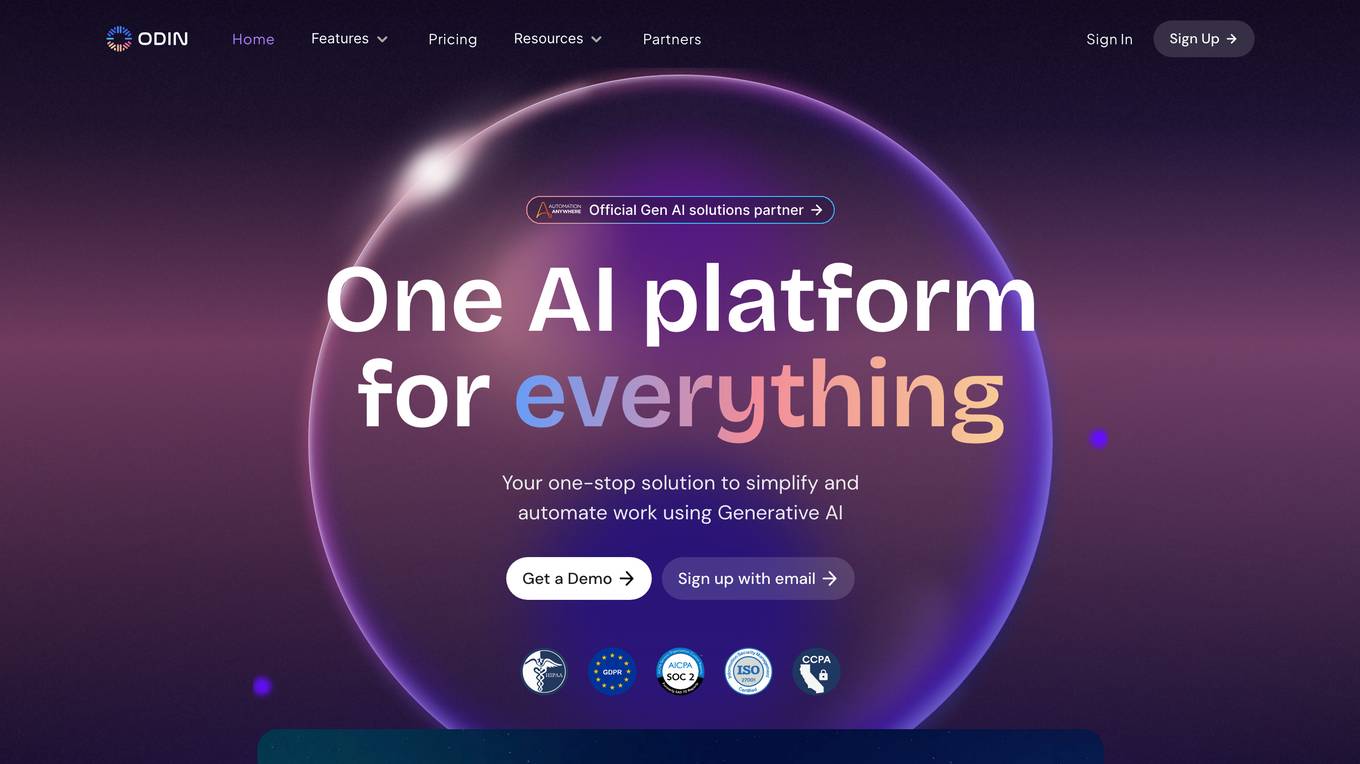
Odin AI
Odin AI is a comprehensive AI platform that offers a range of tools and features to simplify and automate various tasks. It provides solutions for brand compliance, custom templates, guardrails, knowledge graph, model fine-tuning, conversational AI, task automation, meeting note-taking, chatbot building, and more. Odin AI aims to enhance productivity, streamline workflows, and improve decision-making across different industries and use cases.
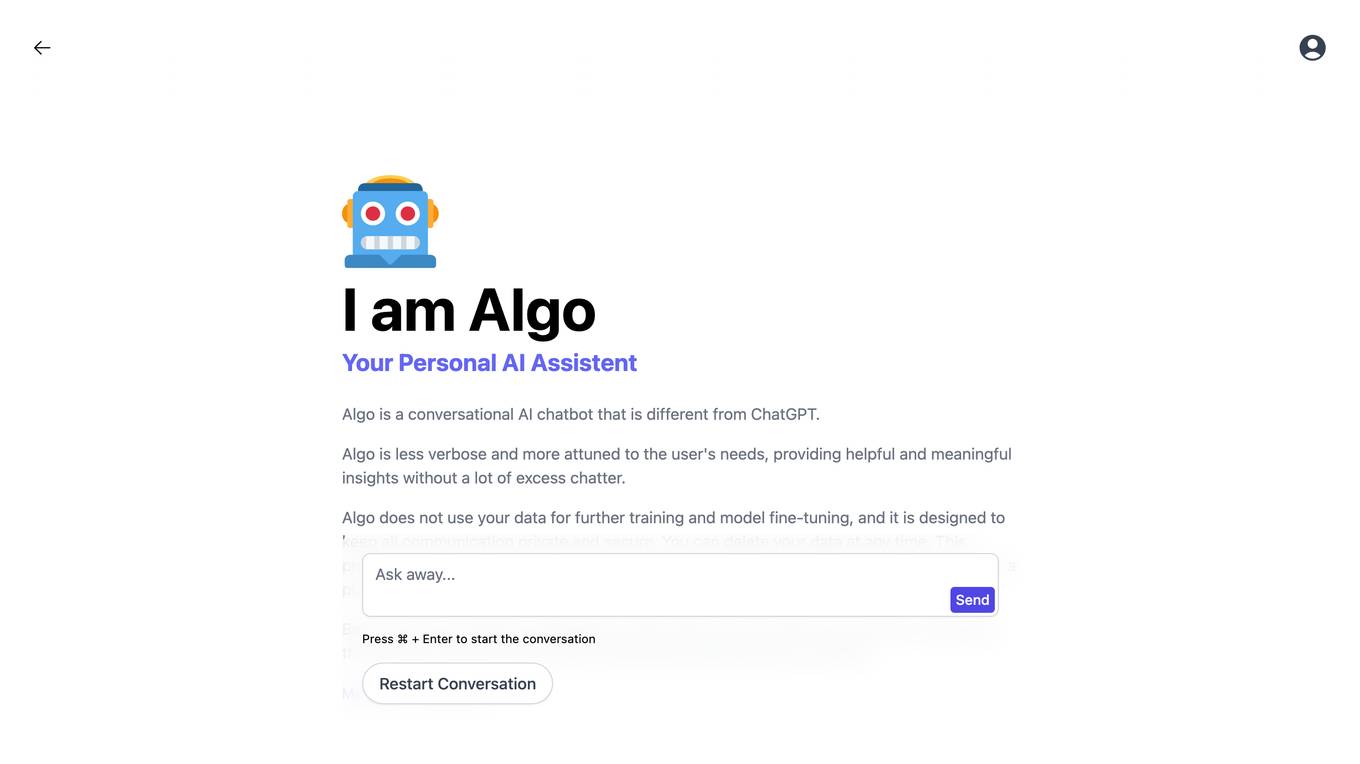
Algo
Algo is a conversational AI chatbot that is different from ChatGPT. Algo is less verbose and more attuned to the user's needs, providing helpful and meaningful insights without a lot of excess chatter. Algo does not use your data for further training and model fine-tuning, and it is designed to keep all communication private and secure. You can delete your data at any time. This provides a higher level of control over personal information compared to ChatGPT, which is a public system and has no provision for data deletion. Beyond its conversational capabilities, Algo boasts built-in features that allow it to browse the web and craft stunning visuals using advanced generative AI models.
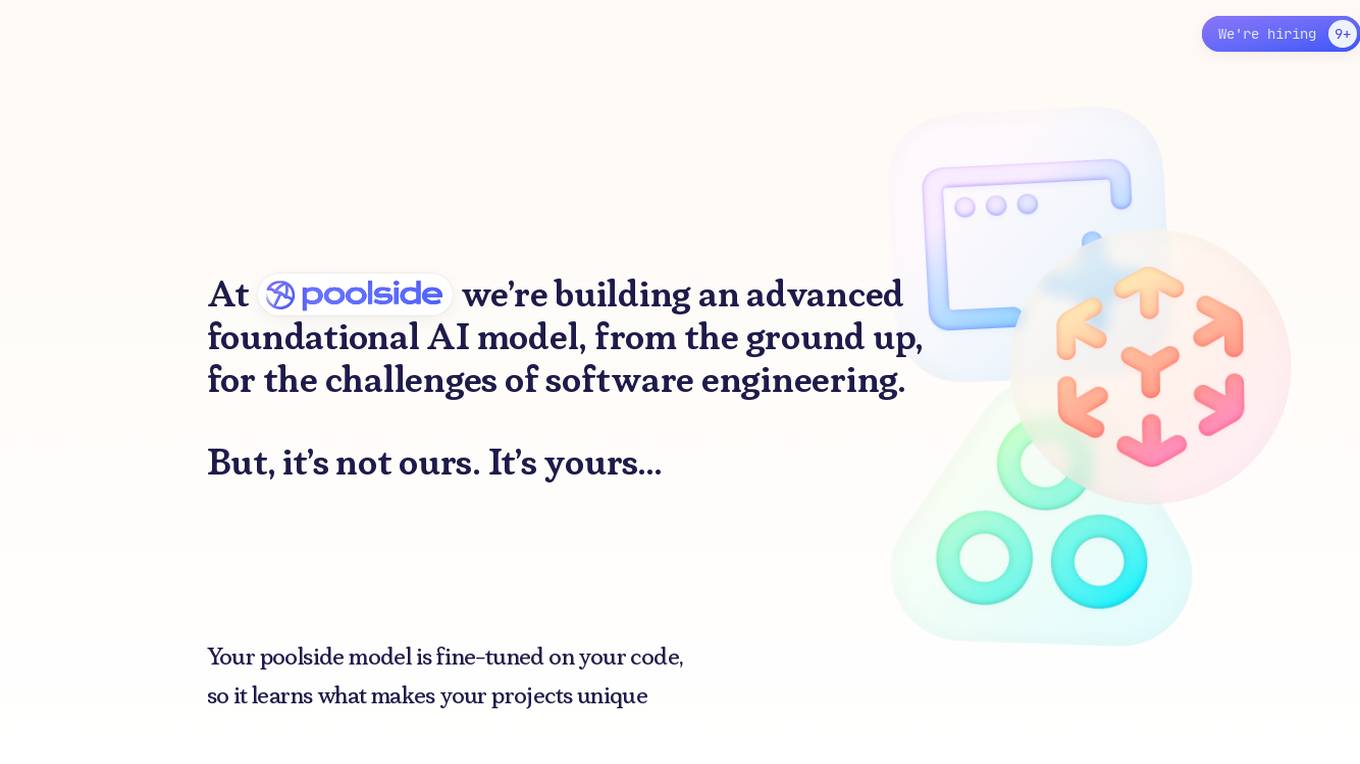
poolside
poolside is an advanced foundational AI model designed specifically for software engineering challenges. It allows users to fine-tune the model on their own code, enabling it to understand project uniqueness and complexities that generic models can't grasp. The platform aims to empower teams to build better, faster, and happier by providing a personalized AI model that continuously improves. In addition to the AI model for writing code, poolside offers an intuitive editor assistant and an API for developers to leverage.
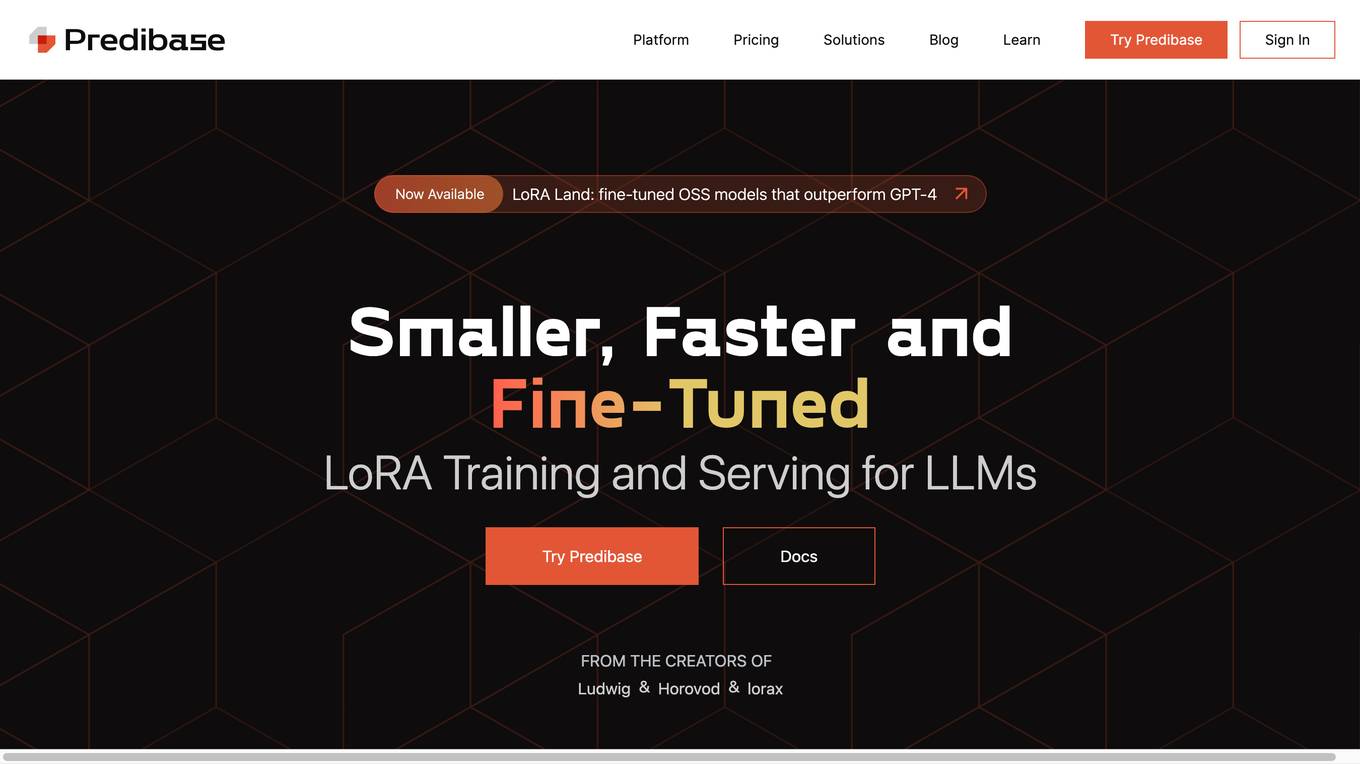
Predibase
Predibase is a platform for fine-tuning and serving Large Language Models (LLMs). It provides a cost-effective and efficient way to train and deploy LLMs for a variety of tasks, including classification, information extraction, customer sentiment analysis, customer support, code generation, and named entity recognition. Predibase is built on proven open-source technology, including LoRAX, Ludwig, and Horovod.
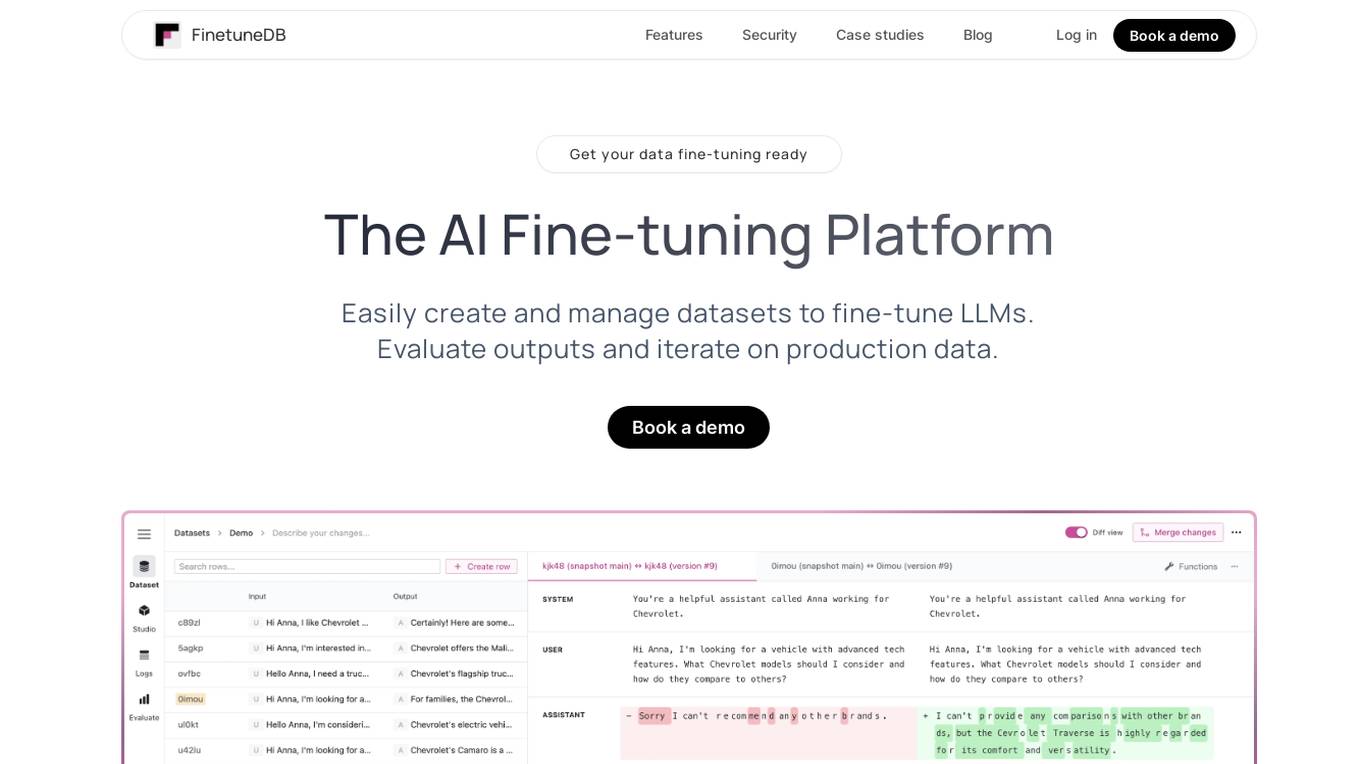
FinetuneDB
FinetuneDB is an AI fine-tuning platform that allows users to easily create and manage datasets to fine-tune LLMs, evaluate outputs, and iterate on production data. It integrates with open-source and proprietary foundation models, and provides a collaborative editor for building datasets. FinetuneDB also offers a variety of features for evaluating model performance, including human and AI feedback, automated evaluations, and model metrics tracking.
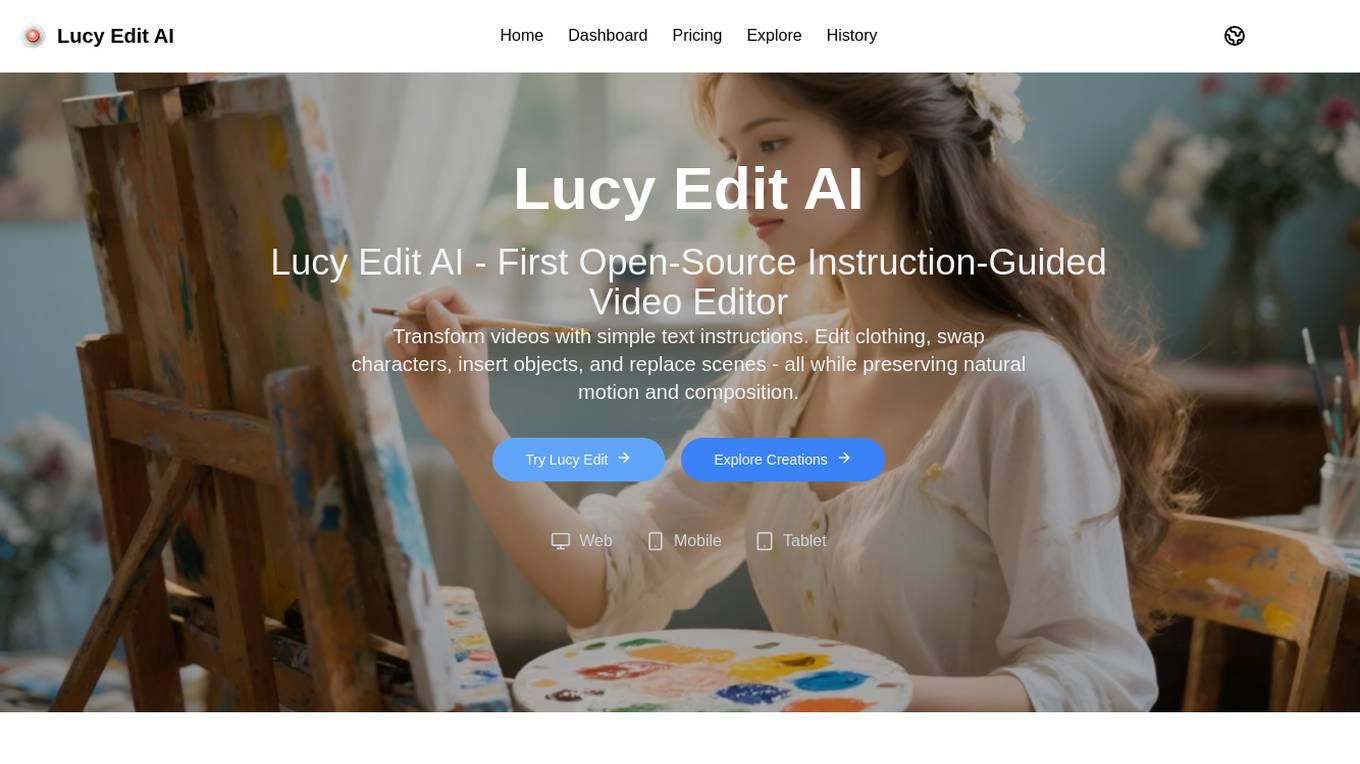
Lucy Edit AI
Lucy Edit AI is an open-source instruction-guided video editing model that allows users to transform videos with simple text instructions. It offers features such as text-guided editing, motion preservation, character transformations, object & scene editing, and high-fidelity transformations. The application is built on Wan2.2 5B architecture and supports 81-frame video generations. Lucy Edit AI is suitable for creators of all levels, from hobbyists to professionals, and is free to use for any purpose, including commercial projects.

Flux LoRA Model Library
Flux LoRA Model Library is an AI tool that provides a platform for finding and using Flux LoRA models suitable for various projects. Users can browse a catalog of popular Flux LoRA models and learn about FLUX models and LoRA (Low-Rank Adaptation) technology. The platform offers resources for fine-tuning models and ensuring responsible use of generated images.
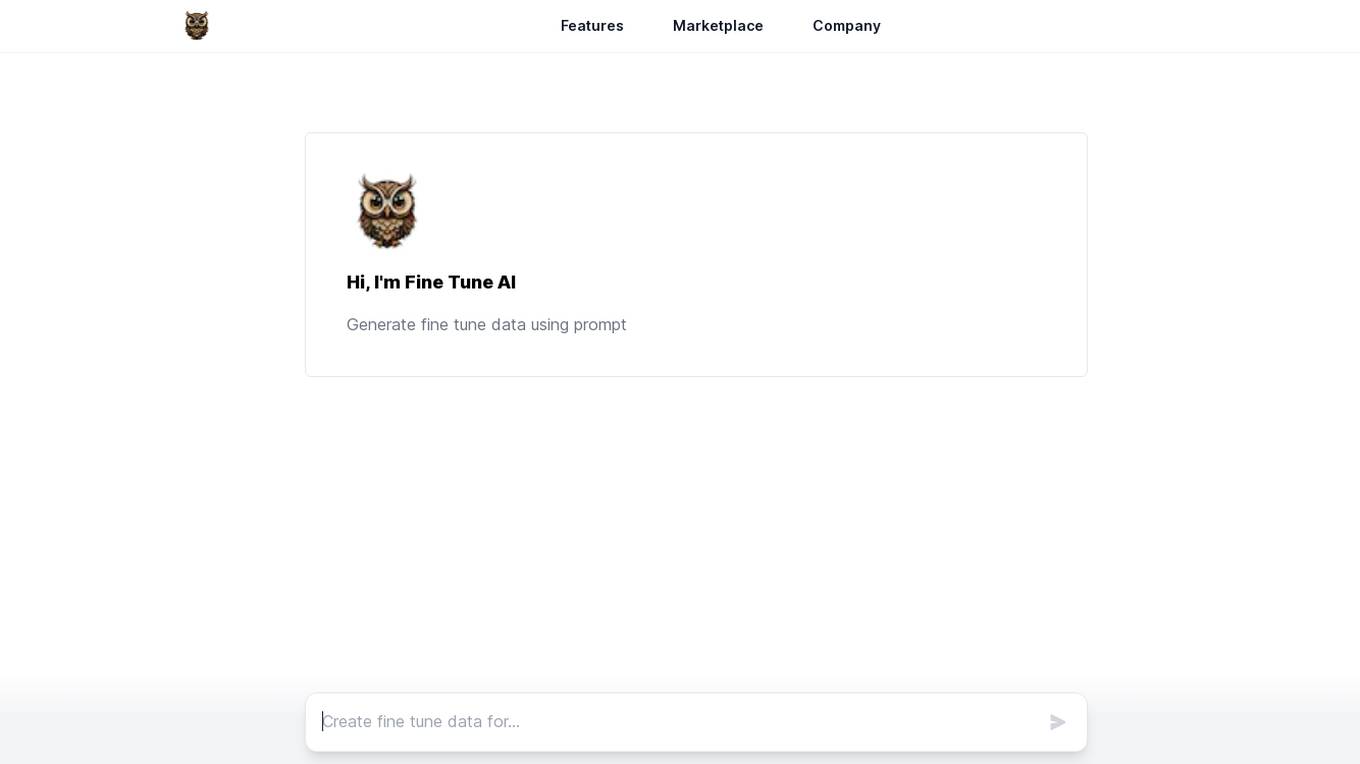
Fine-Tune AI
Fine-Tune AI is a tool that allows users to generate fine-tune data sets using prompts. This can be useful for a variety of tasks, such as improving the accuracy of machine learning models or creating new training data for AI applications.
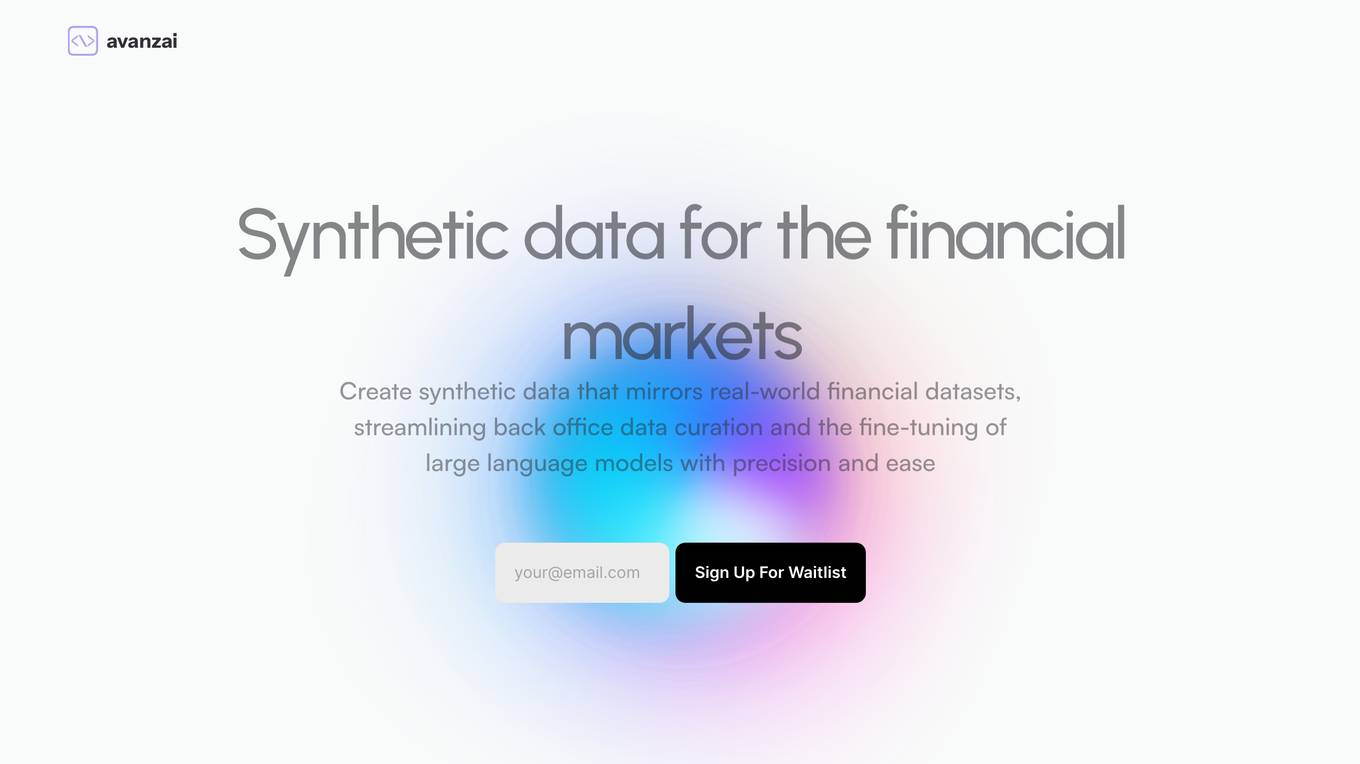
Avanzai
Avanzai is a workflow automation tool tailored for financial services, offering AI-driven solutions to streamline processes and enhance decision-making. The platform enables funds to leverage custom data for generating valuable insights, from market trend analysis to risk assessment. With a focus on simplifying complex financial workflows, Avanzai empowers users to explore, visualize, and analyze data efficiently, without the need for extensive setup. Through open-source demos and customizable data integrations, institutions can harness the power of AI to optimize macro analysis, instrument screening, risk analytics, and factor modeling.
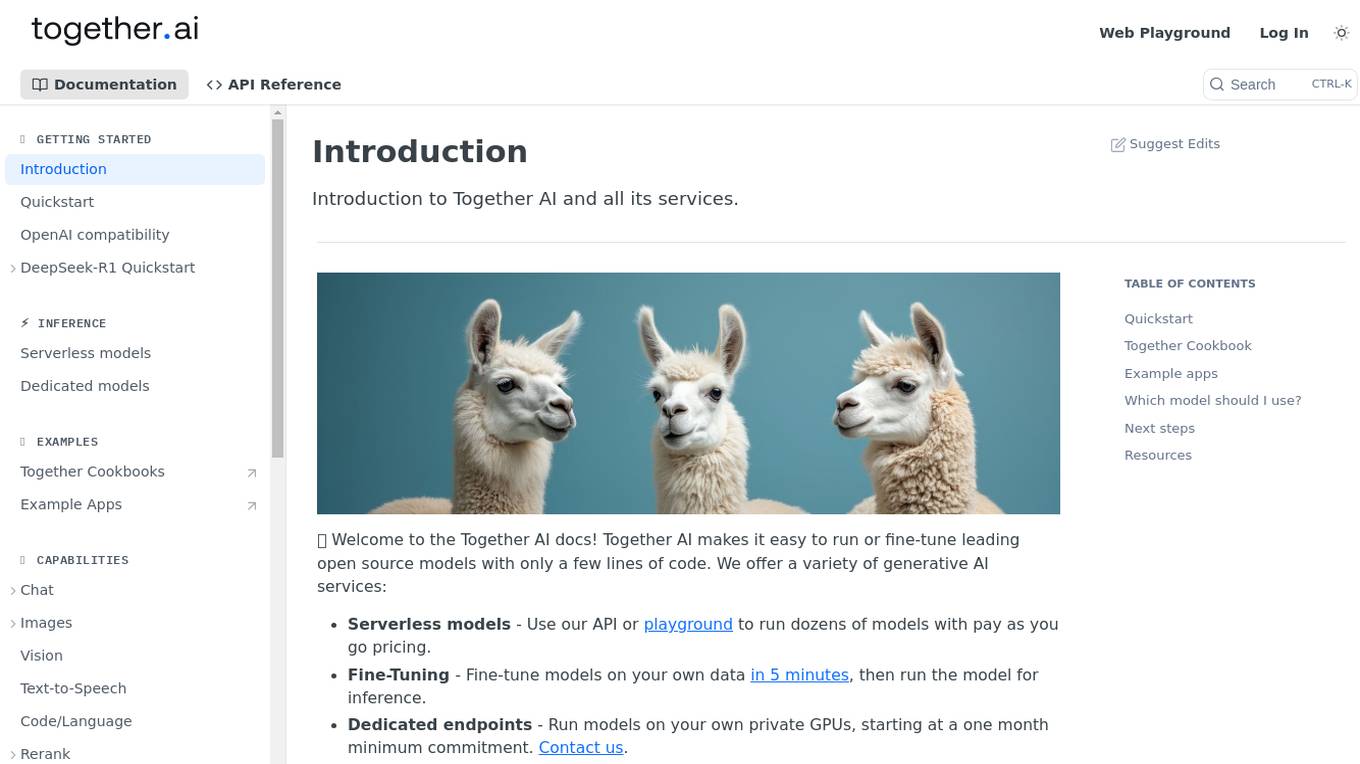
Together AI
Together AI is an AI tool that offers a variety of generative AI services, including serverless models, fine-tuning capabilities, dedicated endpoints, and GPU clusters. Users can run or fine-tune leading open source models with only a few lines of code. The platform provides a range of functionalities for tasks such as chat, vision, text-to-speech, code/language reranking, and more. Together AI aims to simplify the process of utilizing AI models for various applications.

Sapien.io
Sapien.io is a decentralized data foundry that offers data labeling services powered by a decentralized workforce and gamified platform. The platform provides high-quality training data for large language models through a human-in-the-loop labeling process, enabling fine-tuning of datasets to build performant AI models. Sapien combines AI and human intelligence to collect and annotate various data types for any model, offering customized data collection and labeling models across industries.
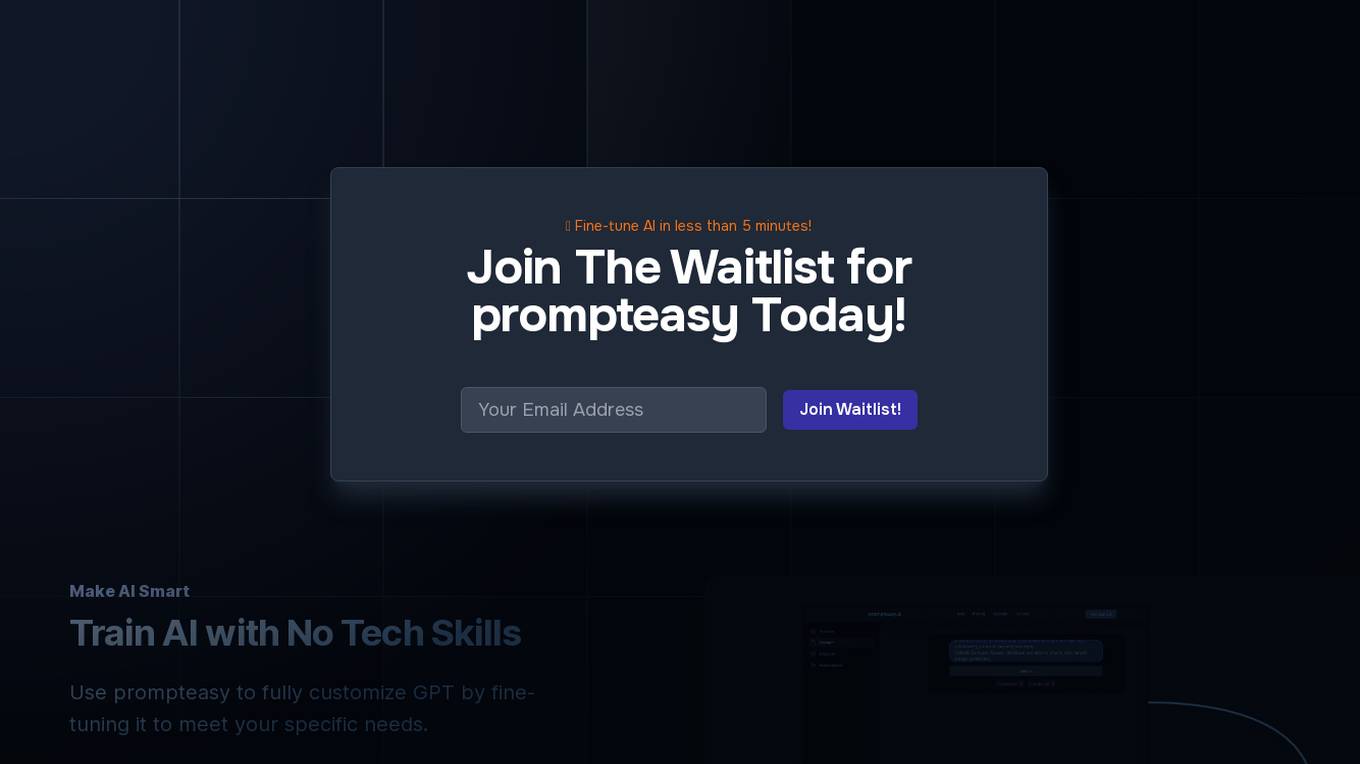
prompteasy.ai
Prompteasy.ai is an AI tool that allows users to fine-tune AI models in less than 5 minutes. It simplifies the process of training AI models on user data, making it as easy as having a conversation. Users can fully customize GPT by fine-tuning it to meet their specific needs. The tool offers data-driven customization, interactive AI coaching, and seamless model enhancement, providing users with a competitive edge and simplifying AI integration into their workflows.
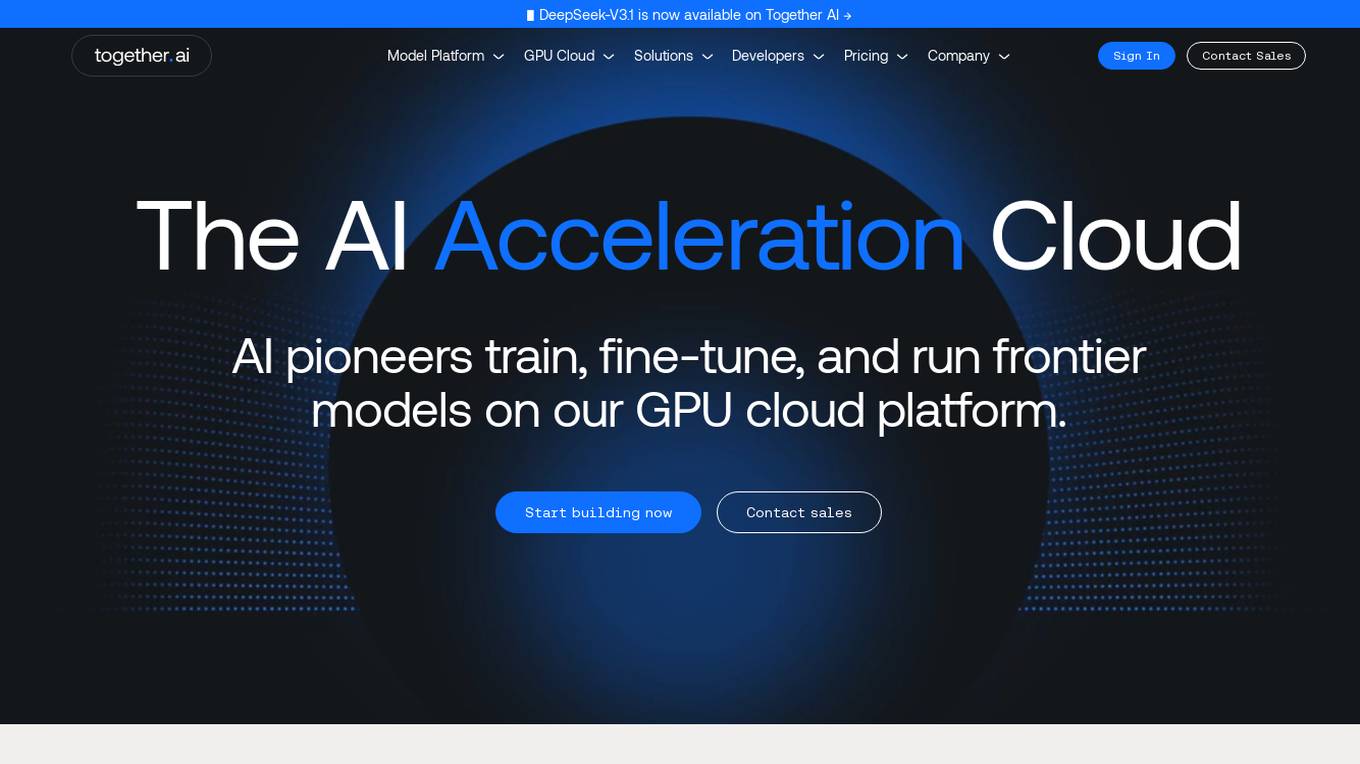
Together AI
Together AI is an AI Acceleration Cloud platform that offers fast inference, fine-tuning, and training services. It provides self-service NVIDIA GPUs, model deployment on custom hardware, AI chat app, code execution sandbox, and tools to find the right model for specific use cases. The platform also includes a model library with open-source models, documentation for developers, and resources for advancing open-source AI. Together AI enables users to leverage pre-trained models, fine-tune them, or build custom models from scratch, catering to various generative AI needs.
2 - Open Source AI Tools
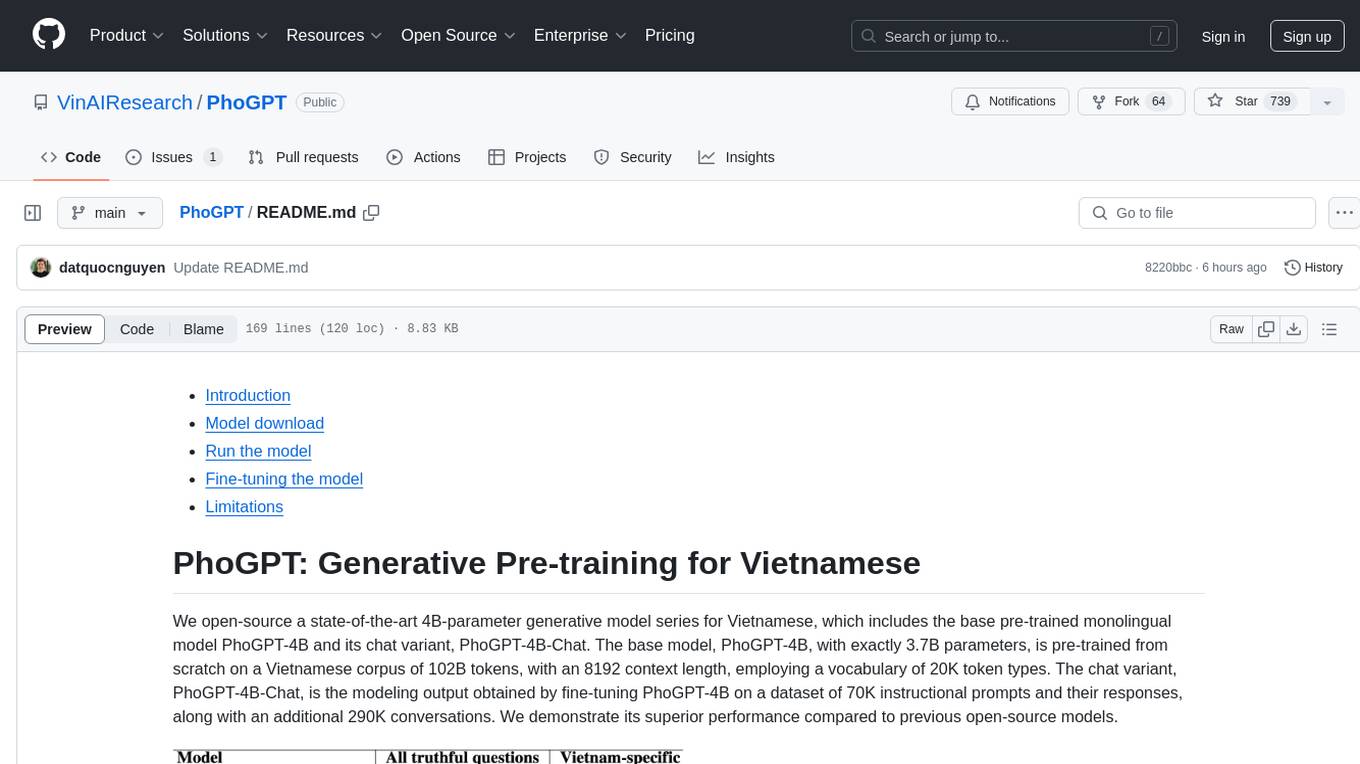
PhoGPT
PhoGPT is an open-source 4B-parameter generative model series for Vietnamese, including the base pre-trained monolingual model PhoGPT-4B and its chat variant, PhoGPT-4B-Chat. PhoGPT-4B is pre-trained from scratch on a Vietnamese corpus of 102B tokens, with an 8192 context length and a vocabulary of 20K token types. PhoGPT-4B-Chat is fine-tuned on instructional prompts and conversations, demonstrating superior performance. Users can run the model with inference engines like vLLM and Text Generation Inference, and fine-tune it using llm-foundry. However, PhoGPT has limitations in reasoning, coding, and mathematics tasks, and may generate harmful or biased responses.
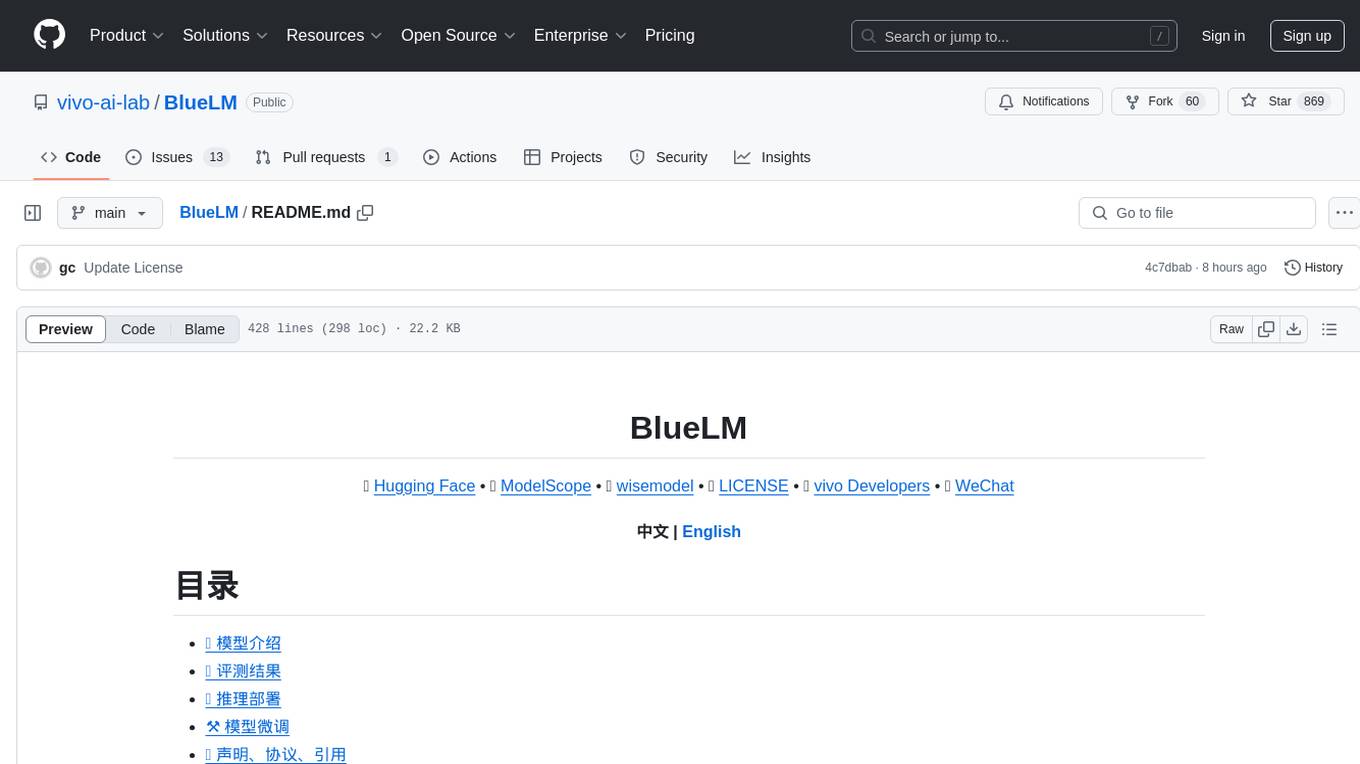
BlueLM
BlueLM is a large-scale pre-trained language model developed by vivo AI Global Research Institute, featuring 7B base and chat models. It includes high-quality training data with a token scale of 26 trillion, supporting both Chinese and English languages. BlueLM-7B-Chat excels in C-Eval and CMMLU evaluations, providing strong competition among open-source models of similar size. The models support 32K long texts for better context understanding while maintaining base capabilities. BlueLM welcomes developers for academic research and commercial applications.
20 - OpenAI Gpts
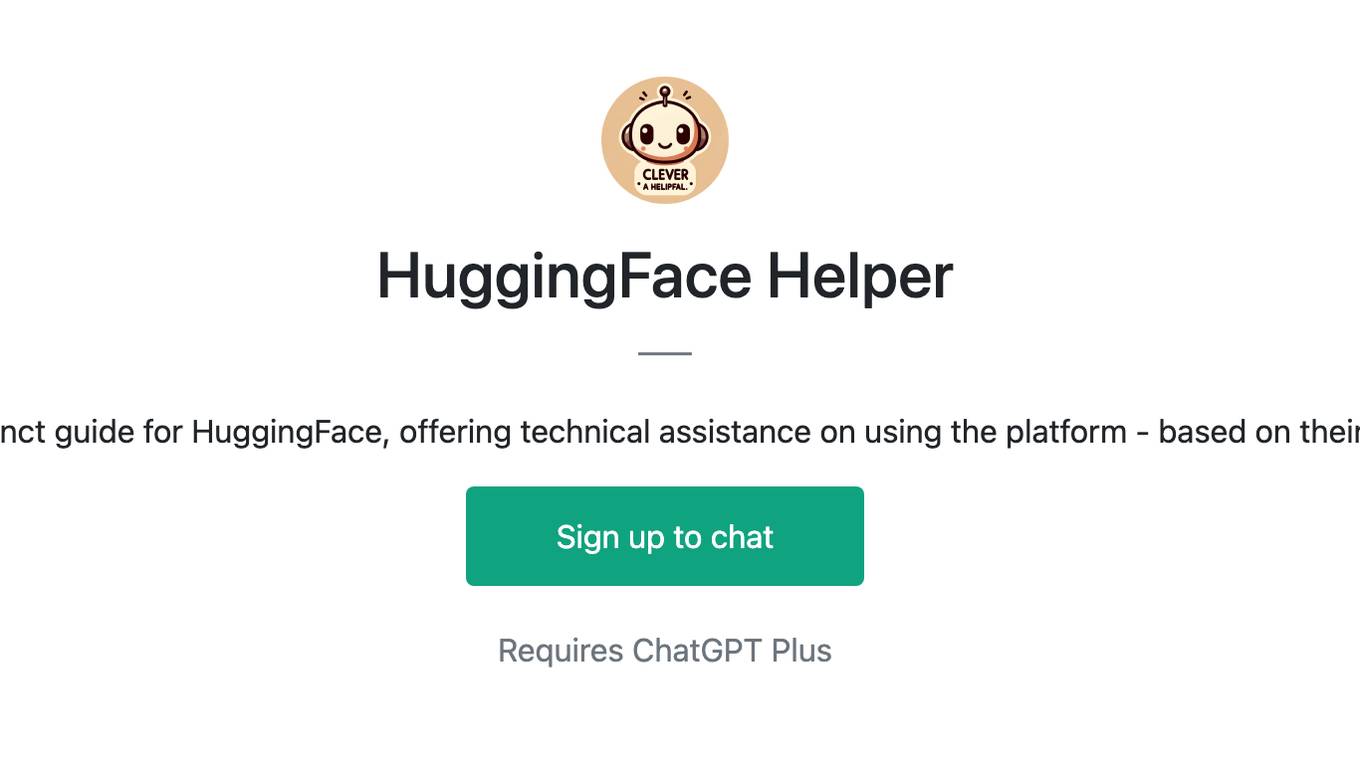
HuggingFace Helper
A witty yet succinct guide for HuggingFace, offering technical assistance on using the platform - based on their Learning Hub

Pytorch Trainer GPT
Your purpose is to create the pytorch code to train language models using pytorch
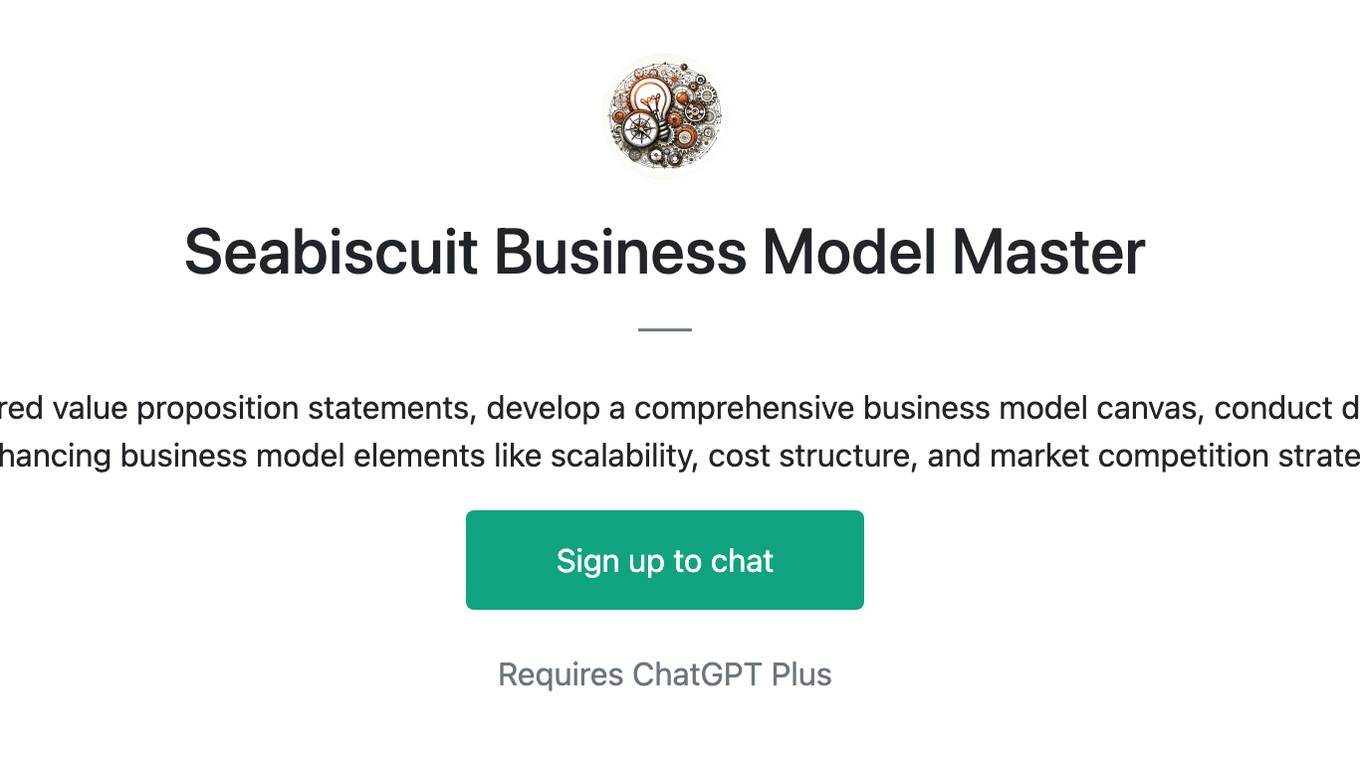
Seabiscuit Business Model Master
Discover A More Robust Business: Craft tailored value proposition statements, develop a comprehensive business model canvas, conduct detailed PESTLE analysis, and gain strategic insights on enhancing business model elements like scalability, cost structure, and market competition strategies. (v1.18)

Create A Business Model Canvas For Your Business
Let's get started by telling me about your business: What do you offer? Who do you serve? ------------------------------------------------------- Need help Prompt Engineering? Reach out on LinkedIn: StephenHnilica

Business Model Canvas Strategist
Business Model Canvas Creator - Build and evaluate your business model
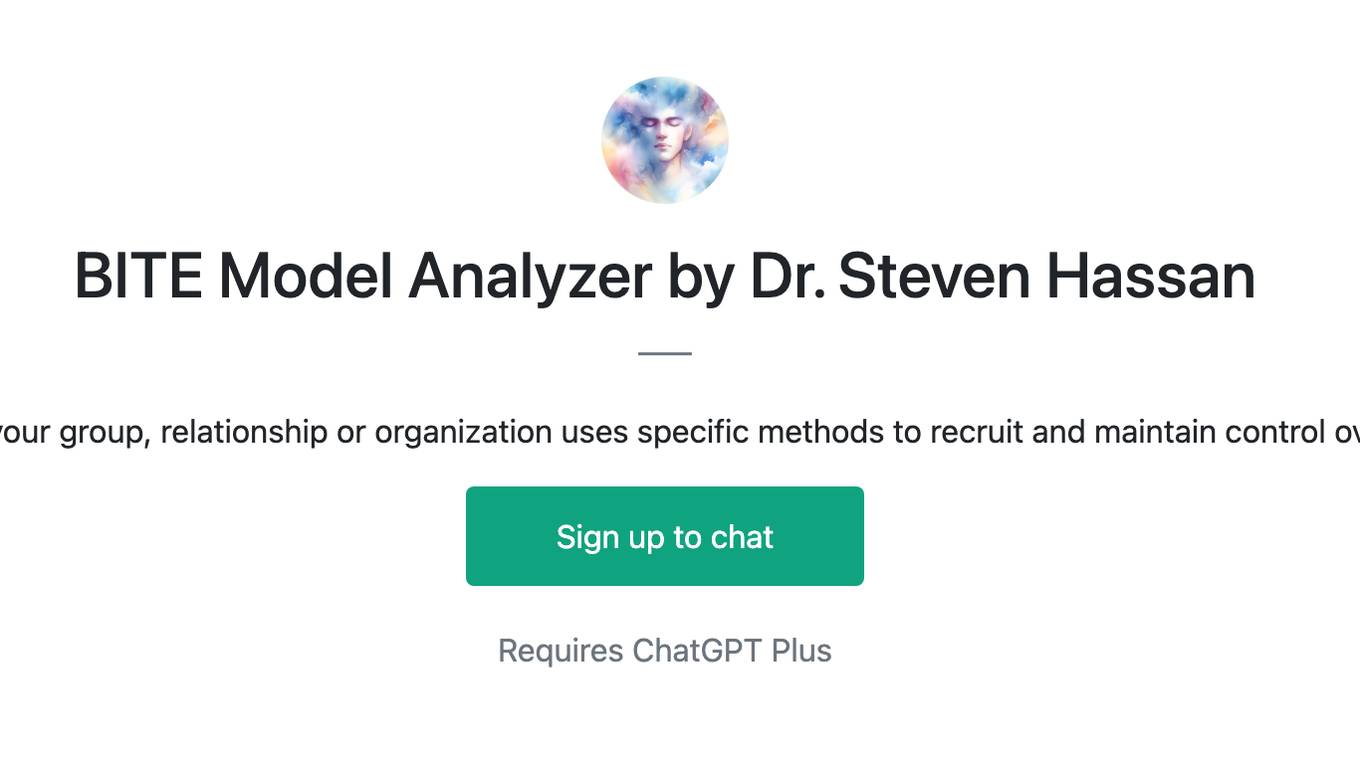
BITE Model Analyzer by Dr. Steven Hassan
Discover if your group, relationship or organization uses specific methods to recruit and maintain control over people
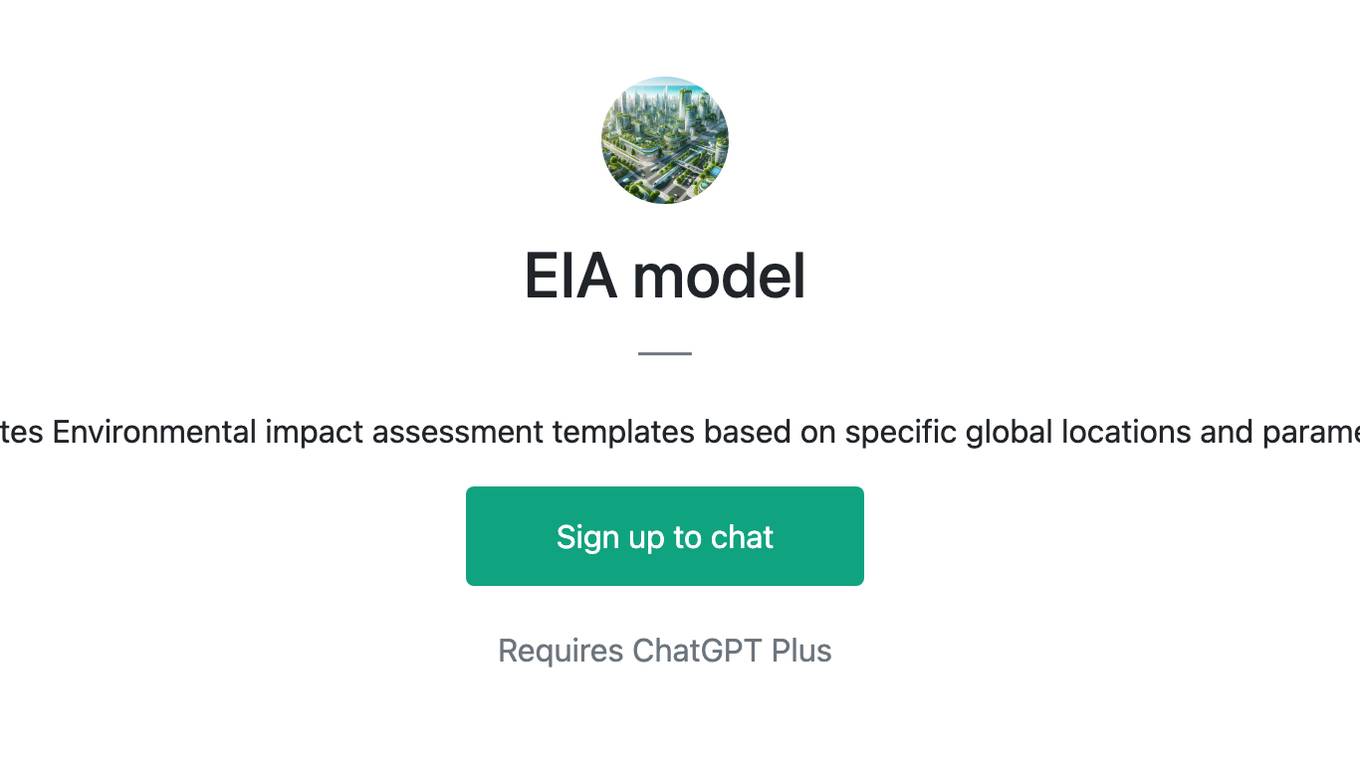
EIA model
Generates Environmental impact assessment templates based on specific global locations and parameters.

Business Model Canvas Wizard
Un aiuto a costruire il Business Model Canvas della tua iniziativa
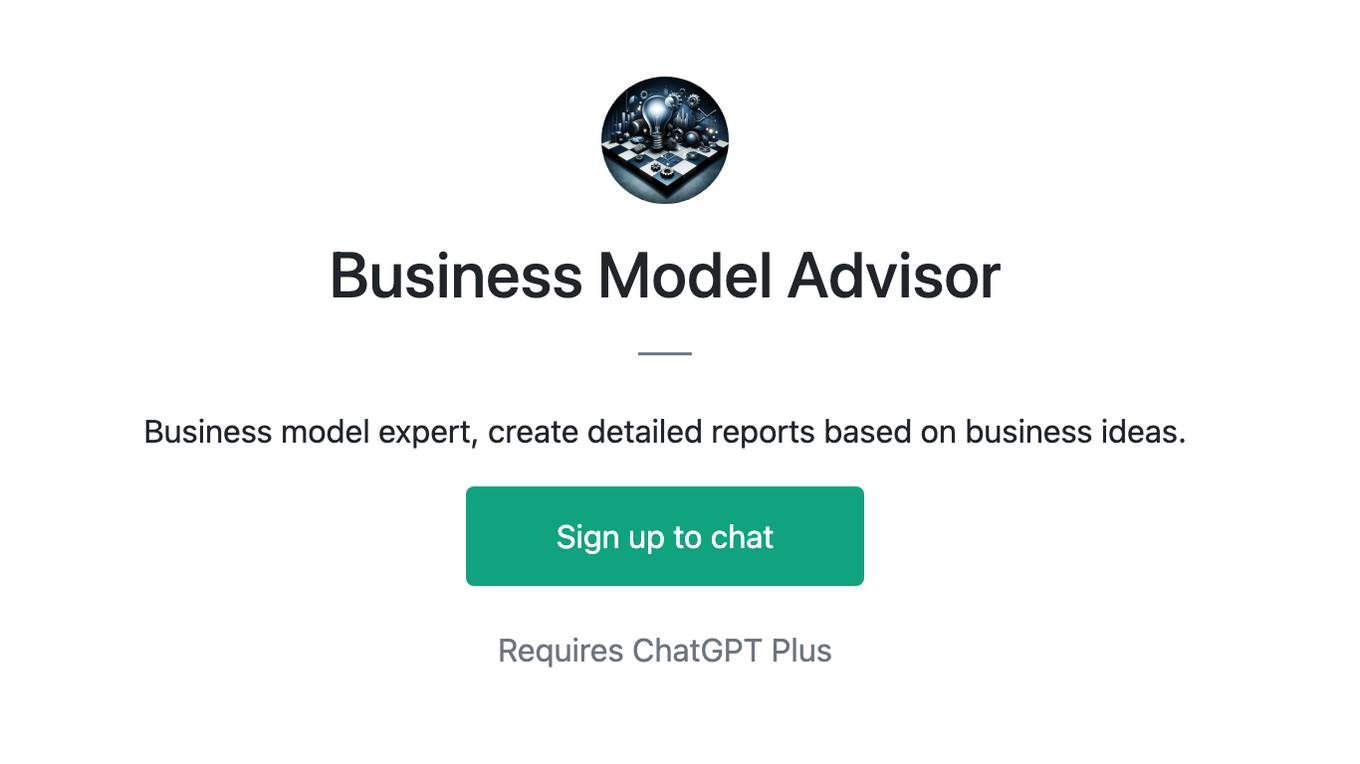
Business Model Advisor
Business model expert, create detailed reports based on business ideas.
